College of Education and Human Development
Department of Organizational Leadership, Policy, and Development

Human resource development PhD
Become an expert in developing individuals and organizations to unleash productivity. This Human Resource Development (HRD) track program prepares you to conduct research and provide sophisticated consultation into how workers acquire new knowledge and skills, relate to one another in complex social environments, and transition to management and leadership positions. You will learn how to see HRD theories and practices in larger economic, social, and political contexts, and you will be able to chart organizational paths for growth in those contexts.
Your contributions to research will help organizations and systems all over the world better understand ways in which to create fair and equitable environments for their workforces, design programs that support workers and prevent burnout, and promote professional growth and satisfaction in employees.
Doctoral students in Human Resource Development gain the capacity to:
- Teach leadership, adult education, and human resource development courses.
- Serve as training and development consultants on program design and implementation.
- Resolve complex organizational and relational issues through innovative training and performance improvement techniques.
- Develop sophisticated measurements to analyze and diagnose organizational challenges.
- Conduct original research in the field and derive transferable insights and applications for local-to-international clients and industries.
- Faculty at a college or university
- Director of organizational effectiveness
- Head of organizational learning and development
- Executive coach or consultant
Departmental core (16 credits)
Professional socialization seminar
- OLPD 8011—Doctoral Research Seminar I (1 cr) [Take Fall term of first year]
Research courses
- OLPD 8015—Inquiry Strategies in Educational and Organizational Research (3 cr) [Take Spring term of first year]
- Quantitative course (3 cr inside or outside of department; with approval of advisor)
- Qualitative course (3 cr inside or outside of department; with approval of advisor)
- Additional methods courses (6 cr; with approval of advisor)
Total PhD credits required
48 credits of HRD coursework + 24 thesis credits = 72 total credits
Specialization (9 credits)
Courses must have advisor approval.
- One OLPD 8xxx level theory seminar (3 cr)
- Two or three 8xxx level seminars offered by various HRD faculty (2-3 cr each for a total of 6 cr)
Thesis credits (24 credits)
All Ph.D. students are required to register for 24 semester thesis credits after completing the preliminary oral exam. The 24 credits must be taken over two or more terms.
- OLPD 8888—Thesis Credits: Doctoral
Additional Research Courses (9 credits)
In addition to the research/methodology courses mentioned in the department core the following are required for students in the HRD track.
- 3 cr statistics course selected in consultation with advisor
- OLPD 8603— The Capstone Research Experience (6 cr.). This course is offered every other year. When it is offered take six credits over two semesters, three credits to be taken in fall semester and three credits to be taken in spring semester. Is usually taken during the second year or third year if the student is full-time.
Additional coursework (14 credits minimum)
Minimum of 14 credits required. These credits can be used to meet the requirement that a minimum of 12 credits be taken outside the HRD track or for a minor. Courses not specifically listed should have advisor approval.
How to apply
Admission deadline.
December 1 for a Fall semester start. Fall semester start only.
Applicants may only apply to one OLPD track.
Applications are not complete until ALL required materials and fees have been received. If anything is missing, your application may not be considered until the next review date the following year. It is strongly recommended to apply at least two weeks before any submission deadlines.
Applications are processed by the Graduate School. A decision for admission notice will be emailed to you once your application is carefully reviewed by the department's admission committee and your transcripts and any credentials (test reports, diploma copies, etc.) are authenticated by Graduate School officials.
Admission Requirements
Degree: Master's degree or equivalent
GPA: Undergraduate 3.0; Graduate 3.4
Note: Applicants should not submit GRE scores, as they will not be considered in the review process.
TOEFL/IELTS Scores (Not required for U.S. students):
- TOEFL: Internet based = 79 or above (21 writing/19 reading)
- IELTS = 6.5
File PhD Application Instructions.pdf
Tuition and funding
Tuition information: CEHD | OneStop
Financial aid: CEHD | OneStop
Readmission
If a graduate student in an OLPD program has become inactive they must follow the readmission procedures .
Whether you seek reactivation after accidentally being discontinued this term or want to return after a long absence these are the steps needed to re-apply.
- Complete the proper online readmission application . If you have been away from the program less than five years use the Express Readmission Application and email it to [email protected] . All others must submit the Online Application for Readmission
- Once received, the department will forward your application to the appropriate admissions committee. Readmission decisions are normally determined by the program’s admissions committee, not any one individual faculty member. Readmission is never guaranteed. Decisions for readmission are based on a review of previous progress toward degree completion, the proposed timeline for completion, the availability of faculty resources, and/or any additional application materials they may request from you. Individual programs/tracks reserve the right to readmit students under the current graduate program requirements, rules, and guidelines. They may also request an applicant to provide additional information prior to making a decision.
- Once the committee makes their recommendation, the department’s DGS will sign off on the decision and forward the result to the central Graduate Admissions Office for processing. Once processed, you will be notified of the decision.
Individual department programs and tracks reserve the right to require readmitted students to retake coursework if they deem it appropriate. Readmitted students are also required to abide by current time-to-degree policies as determined by the University, which may differ from the policy in place when they first started the degree program.
Individuals seeking readmission to the Ph.D., Ed.D., and M.A. program tracks in the former EDPA, WHRE, and WCFE majors can only reapply to the appropriate program track under the Organizational Leadership, Policy, and Development (OLPD) major name.
We’re here to help. Simply complete this form and a member of our department will be in touch.

Education & Human Development
Educational administration & human resource development, how to apply.

The Department of Educational Administration and Human Resource Development
The Department of Educational Administration and Human Resource Development (EAHR) develops educational leaders and improves practice through teaching, research and service in the areas of public school administration, human resource development, higher education administration, adult education and student affairs administration. Statewide and nationally, EAHR graduates, faculty and staff play major roles in the education of children and adults.
As one of four departments in the School of Education and Human Development, EAHR is currently home to about 380 undergraduate students, 392 graduate students, 22 faculty and 22 staff.
Featured Videos
Student highlight: jeff mccanna.
Creating Inclusive Environments in Schools - Dr. Jean Madsen
Program Highlight: Adult Education
Bachelor’s →
Certificates →
Master’s →
Emphasis Areas
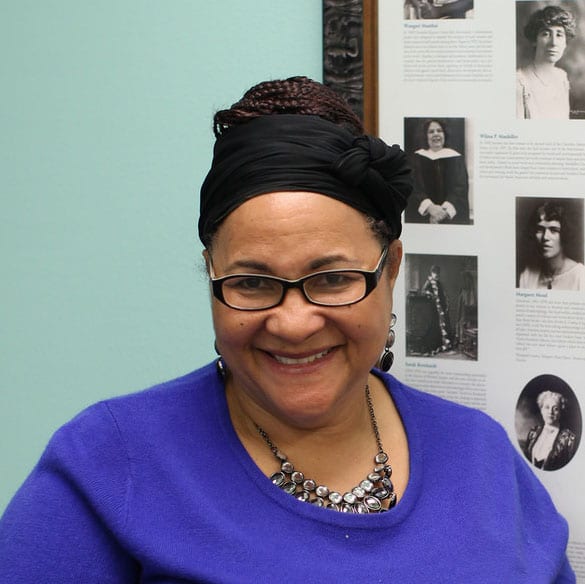
FROM OUR STUDENTS
“What I enjoy most are the opportunities to work with such a diverse, intelligent, talented group of life-long learners,” said Druery. “People who are helpful, friendly and want to see you succeed encourage me on a daily basis.”
– Donna Druery
Ph.D. in Educational Human Resource Development, Emphasis in:
Human resource development, learn about our human resource development program.
Attending any one of the informational webinars is strongly recommended to strengthen your application and materials to the Ph.D. program. During the webinar, you will have opportunities to interact with program faculty who will answer any questions you may have.
Webinar Series
- March 18, 2024: 6:00-7:00 PM
- April 22, 2024, 6:00-7:00 PM
To attend the session:
Join Zoom Meeting
https://tamu.zoom.us/j/9644566444?omn=97226137196
Program Overview
Human Resource Development (HRD) is the process of improving learning and performance in individual, group, and organizational contexts through domains of expertise such as lifelong learning, career development, training and development, and organizational development. Our students have opportunities for international travel, professional presentations and writing for publication.
The Ph.D. program requires:
- A minimum of 72 credit hours with a master’s degree, or
- 96 credit hours without a master’s degree.
This degree prepares individuals for professional work settings, as well as faculty positions in research universities. It also offers a variety of courses that allow students to emphasize in areas essential to a successful career in the field.
Admissions Deadline: December 1
To be admitted to a graduate program, you must apply to the EAHR department and Texas A&M University.
Program Details
Degree: Ph.D. in Educational Human Resource Development Emphasis: Human Resource Development Degrees Offered: Doctor of Philosophy Credit Hours: 72 credit hours with a master’s degree
For a better understanding of your total cost of attendance (COA), please visit our cost and tuition rates webpage ( https://aggie.tamu.edu/billing-and-payments/cost-and-tuition-rates ). This webpage will provide you with an opportunity to review estimated COA information for undergraduate, graduate and professional students, as well as other resources such as the tuition calculator and billing and fee explanations.
Degree Plan
Ph.d. curriculum.
Download PhD Degree Plan (EHRD)
Frequently Asked Questions
How can i strengthen my application.
All prospective Ph.D. students are highly encouraged to meet with a program faculty member prior to applying to the program, to ask questions and ensure that it will help meet your goals. These meetings can also serve as opportunities for prospective students to find out what type of candidates the program is looking for.
Prospective students are encouraged to apply early, especially if they are wanting to be considered for awards, such as fellowships and assistantships.
Are GRE scores required?
The GRE is not a requirement for the Ph.D. in Educational Human Resource Development (HRD) program.
How soon can I apply?
Applications for the Ph.D. program are accepted August 1-December 1 , for the following Fall semester.
It is recommended that applicants submit all application materials in advance of the deadline to ensure a complete application when reviews begin.
How do I apply?
Completed application.
- A completed Texas A&M University GraduateCAS application.
- The name on your application must match your name as it appears in your passport.
- Application fee : A non-refundable $89 application fee for domestic applicants and $114 application fee for international applicants. The application fee may be paid by check, money order or approved credit card. Applicants who wish to pay by credit card may do so as part of the online application. If you are unable to pay the fee online, you may call the Graduate Admissions Office at 979-845-1060.
- Official transcripts and records : Submit official transcripts from all colleges or universities attended.
Note: You do not need to submit an official transcript from Texas A&M University . Learn more about submitting official transcripts .
How to Apply:
- Doctoral Application Information
What types of funding are available to Ph.D. students?
Full-time PhD students are eligible to apply for Graduate Assistantships. These assistantships pay for nine hours of tuition, as well as a monthly stipend. These assistantships range from assisting with courses, teaching undergraduate courses, or assisting with research.
Full-time students are also eligible to be nominated by faculty for a fellowship. These fellowships are competitive, so prospective students are encouraged to have their admission applications submitted early. They are also encouraged to meet with faculty members in the program to discuss their interest in the program, as well as being considered for an award.
Students who are not full-time can contact the Student Financial Aid office for other funding opportunities available to graduate students.
What should I include in my Statement of Purpose?
Admissions committee members look mainly for fit between what the applicant wants from a graduate program, and what we offer.
In the personal statement, applicants are encouraged to clearly state and connect their background or current work, particularly their future career plans, to the degree they are seeking.
Contact Advisors

Kerri Smith
Associate Director
View Directory Profile

Rhonda Fowler
Clinical Associate Professor
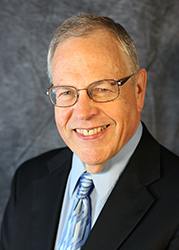
Michael Beyerlein
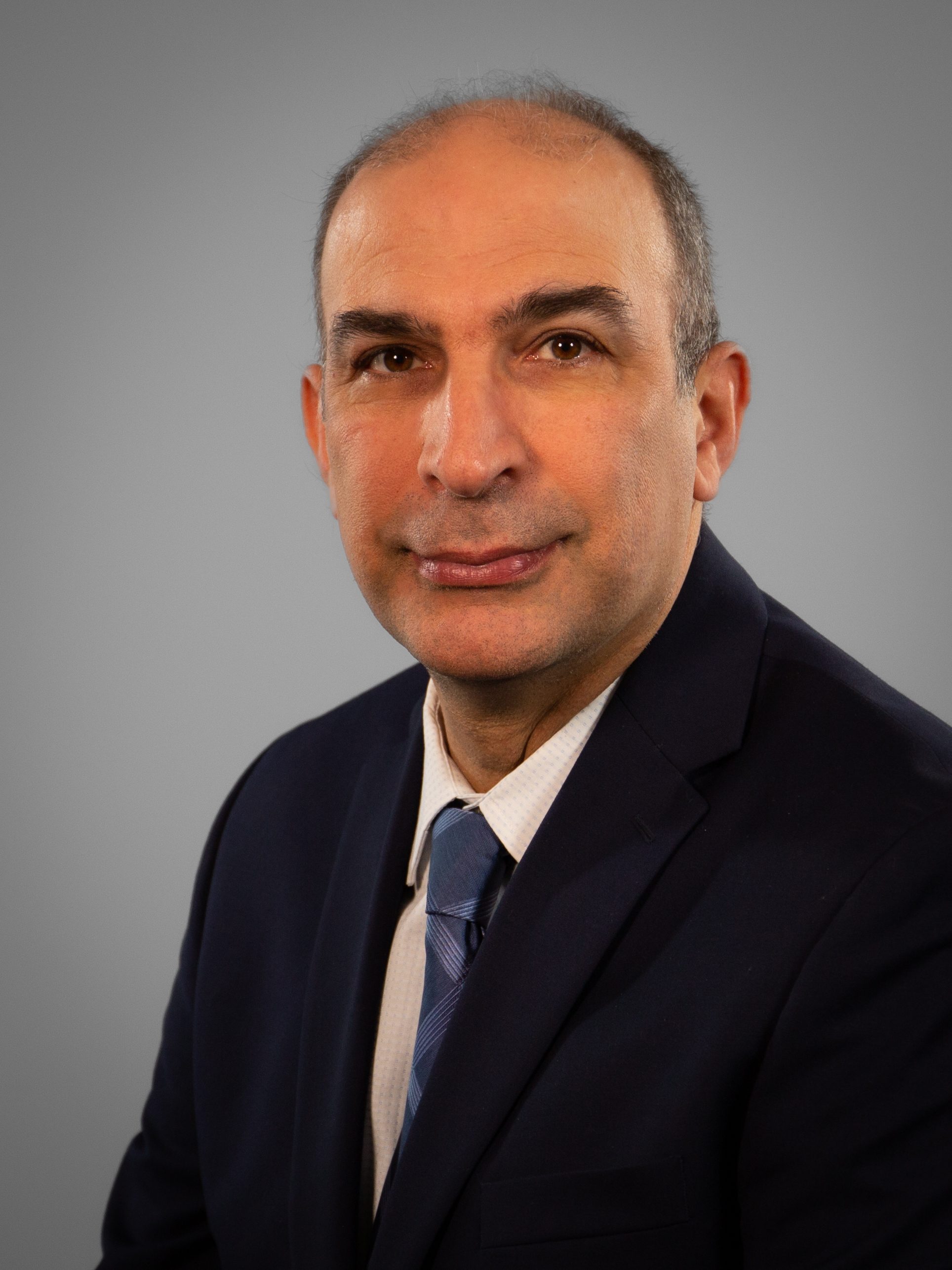
Khalil Dirani
Interim Department Head and Professor

Ji Hee Hwang
Clinical Assistant Professor

Junghwan Kim
Associate Professor

Seung Won Yoon

Mattyna Stephens

Paula Yoder

Visiting Assistant Professor

Aynur Charkasova
Request information.
Can't find what you are looking for?
- louisville.edu
- PeopleSoft HR
- PeopleSoft Campus Solutions
- PeopleSoft Financials
- Business Ops
- Cardinal Careers

Ph.D. in Human Resources and Organizational Development
Human Resources and Organizational Development (HROD) is a field of practice dedicated to learning, development and performance for work and workplaces. HROD is one of five specialties in the Ph.D. in Educational Leadership and Organization Development with a specialization in Human Resources and Organizational Development.
The program is designed to prepare leaders in the HROD field. The coursework and other requirements are designed to help prepare (a) HROD-related faculty members in college/university settings, (b) advanced scholar-practitioners who lead HROD functions in a variety of organization types, and (c) policy specialists/professional researchers.
The HROD specialty in the Ph.D. in Educational Leadership and Organizational Development contains three areas of emphasis:
This program is open to all eligible students regardless of race, color, national origin, sex, disability, or age.
Leadership and Organization Development
This emphasis is designed for students who are interested in:
- Organizational Change
- Organization Development
- Organizational Leadership
Workplace Learning and Human Resources
- Employee Training and Learning
- Performance Improvement
- E-Learning in Workplaces
- Career Planning and Talent Management
- Human Resource Management
Workforce Development
- Career and Technical Education
- Postsecondary Workforce Development
- Community-based Workforce Development
- Adult Education
Our Students
In recent years, most new HROD doctoral students have been highly talented, experienced professionals who have returned to school to engage in full-time graduate study. However, part-time study is also an option. Our HROD doctoral students tend to be highly motivated to work in a collegial community by engaging with ideas and research to advance theory and knowledge in this important specialization. In the process, our students build their professional capacity to improve practice and policy in workplace learning, human resources, organizational development, and workforce development.
The Curriculum
HROD is a specialization in the Ph.D. program in Educational Leadership and Organizational Development in the Department of Educational Leadership, Evaluation and Organizational Development in the College of Education and Human Development. Outside of core requirements, individual programs are highly customizable and interdisciplinary.
Depending upon your specific areas of interest, you can also take classes and work with other faculty in diverse fields. In our own department, students have access to scholars in Workforce and Human Resource Education, Evaluation, Higher Education Administration, and P-12 Leadership. In other departments, students can work with scholars in diverse fields such as Educational Psychology, Teaching and Learning, Sport Administration, Sociology, Public Administration, Sociology, Communication, and Women's and Gender Studies.
- Doctoral Student Handbook
- ELOD Comprehensive Examination Guidelines
- ELEOD Comps Exam Scoring Rubic
Contact Dr. Brad Shuck at 502-852-7396 if you have questions about the program or would like to apply.
For more information about specific program requirements and admissions requirements, please visit the Educational Leadership and Organization Development Program website . For more information about Organizational Leadership and Learning, please visit the program website .
Texas A&M University Catalogs
Doctor of philosophy in educational human resource development.
The Educational Human Resource Development (EHRD) doctoral degree program prepares individuals for professional work settings and faculty positions in research and teaching colleges and universities. It also offers a variety of courses in which a student may choose to emphasize areas essential for the knowledge and skills necessary to meet your goals.
The EHRD program with an emphasis in Workforce, Adult, and Lifelong Education (WALE) aims to develop practitioners and scholars who are critically reflective, learner-centered, and committed to social justice. WALE emphasis prepares individuals to administer programs and educate/teach/empower adults in various organizational, community, and workplace settings, along with research significant lifelong learning, adult education, and workforce development topics.
The EHRD program with an emphasis in Human Resource Development (HRD) aims to provide students with expertise for improving learning and performance in the individual, group, organizational, and international contexts. HRD emphasis prepares individuals to become educated scholars and practitioners in career development, training and development, and organization development.
Steps to Fulfill a Doctoral Program
Program Requirements
- Student's Advisory Committee
Degree Plan
Transfer of credit, research proposal, preliminary examination, preliminary examination format, preliminary examination scheduling, preliminary examination grading, failure of the preliminary examination, retake of failed preliminary examination, final examination, final examination grading, dissertation, student’s advisory committee.
After receiving admission to graduate studies and enrolling, the student will consult with the head of their major or administrative department (or chair of the intercollegiate faculty) concerning appointment of the chair of the advisory committee. The student’s advisory committee will consist of no fewer than four members of the graduate faculty representative of the student’s several fields of study and research, where the chair or co-chair must be from the student’s department (or intercollegiate faculty, if applicable), and at least one or more of the members must have an appointment to a department other than the student’s major department . The outside member for a student in an interdisciplinary degree program must be from a department different from the chair of the student’s committee.
The chair, in consultation with the student, will select the remainder of the advisory committee. Only graduate faculty members located on Texas A&M University campuses may serve as chair of a student’s advisory committee. Other Texas A&M University graduate faculty members located off-campus may serve as a member or co-chair (but not chair), with a member as the chair.
If the chair of a student’s advisory committee voluntarily leaves the University and the student is near completion of the degree and wants the chair to continue to serve in this role, the student is responsible for securing a current member of the University Graduate Faculty, from the student’s academic program and located near the Texas A&M University campus site, to serve as the co-chair of the committee. The Department Head or Chair of Intercollegiate faculty may request in writing to the Associate Provost and Dean of the Graduate and Professional School that a faculty member who is on an approved leave of absence or has voluntarily separated from the university, be allowed to continue to serve in the role of chair of a student’s advisory committee without a co-chair for up to one year. The students should be near completion of the degree. Extensions beyond the one year period can be granted with additional approval of the Dean.
The committee members’ signatures on the degree plan indicate their willingness to accept the responsibility for guiding and directing the entire academic program of the student and for initiating all academic actions concerning the student. Although individual committee members may be replaced by petition for valid reasons, a committee cannot resign en masse . The chair of the committee, who usually has immediate supervision of the student’s research and dissertation or record of study, has the responsibility for calling all meetings of the committee. The duties of the committee include responsibility for the proposed degree plan, the research proposal, the preliminary examination, the dissertation or record of study and the final examination. In addition, the committee, as a group and as individual members, is responsible for counseling the student on academic matters, and, in the case of academic deficiency, initiating recommendations to the Graduate and Professional School.
The student’s advisory committee will evaluate the student’s previous education and degree objectives. The committee, in consultation with the student, will develop a proposed degree plan and outline a research problem which, when completed, as indicated by the dissertation (or its equivalent for the degree of Doctor of Education or the degree of Doctor of Engineering), will constitute the basic requirements for the degree. The degree plan must be filed with the Graduate and Professional School prior to the deadline imposed by the student’s college and no later than 90 days prior to the preliminary examination.
This proposed degree plan should be submitted through the online Document Processing Submission System located on the website http://ogsdpss.tamu.edu . A minimum of 72 hours is required on the degree plan for the Doctor of Philosophy for a student who has completed a master’s degree. A student who has completed a DDS/DMD, DVM or a MD at a U.S. institution is also required to complete a minimum of 72 hours. A student who has completed a baccalaureate degree but not a master’s degree will be required to complete a 96-hour degree plan. Completion of a DDS/DMD, DVM or MD degree at a foreign institution requires completion of a minimum of 96 hours for the Doctor of Philosophy. A field of study may be primarily in one department or in a combination of departments. A degree plan must carry a reasonable amount of 691 (research). A maximum of 9 hours of 400-level undergraduate courses may be used toward meeting credit-hour requirements for the Doctor of Philosophy.
Additional coursework may be added by petition to the approved degree plan by the student’s advisory committee if it is deemed necessary to correct deficiencies in the student’s academic preparation. No changes can be made to the degree plan once the student’s Request for Final Examination is approved by the Graduate and Professional School.
Approval to enroll in any professional course (900-level) should be obtained from the head of the department (or Chair of the intercollegiate faculty, if applicable) in which the course will be offered before including such a course on a degree plan.
No credit may be obtained by correspondence study, by extension or for any course of fewer than three weeks duration.
For non-distance degree programs, no more than 50 percent of the non-research credit hours required for the program may be completed through distance education courses.
To receive a graduate degree from Texas A&M University, students must earn one-third or more of the credits through the institution’s own direct instruction. This limitation also applies to joint degree programs.
Courses for which transfer credits are sought must have been completed with a grade of B or greater and must be approved by the student’s advisory committee and the Graduate and Professional School. These courses must not have been used previously for another degree. Except for officially approved cooperative doctoral programs, credit for thesis or dissertation research or the equivalent is not transferable. Credit for “internship” coursework in any form is not transferable. Courses taken in residence at an accredited U.S. institution or approved international institution with a final grade of B or greater will be considered for transfer credit if, at the time the courses were completed, the courses would be accepted for credit toward a similar degree for a student in degree-seeking status at the host institution. Credit for coursework taken by extension is not transferable. Coursework in which no formal grades are given or in which grades other than letter grades (A or B) are earned (for example, CR, P, S, U, H, etc.) is not accepted for transfer credit . Credit for coursework submitted for transfer from any college or university must be shown in semester credit hours, or equated to semester credit hours.
Courses used toward a degree at another institution may not be applied for graduate credit. If the course to be transferred was taken prior to the conferral of a degree at the transfer institution, a letter from the registrar at that institution stating that the course was not applied for credit toward the degree must be submitted to the Graduate and Professional School.
Grades for courses completed at other institutions are not included in computing the GPA. An official transcript from the university at which transfer courses are taken must be sent directly to the Office of Admissions.
The general field of research to be used for the dissertation should be agreed on by the student and the advisory committee at their first meeting, as a basis for selecting the proper courses to support the proposed research.
As soon thereafter as the research project can be outlined in reasonable detail, the dissertation research proposal should be completed. The research proposal should be approved at a meeting of the student’s advisory committee, at which time the feasibility of the proposed research and the adequacy of available facilities should be reviewed. The approved proposal, signed by all members of the student’s advisory committee, the head of the student’s major department (or chair of the intercollegiate faculty, if applicable), must be submitted to the Graduate and Professional School at least 20 working days prior to the submission of the Request for the Final Examination.
Examinations
The student’s major department (or chair of the interdisciplinary degree program faculty, if applicable) and their advisory committee may require qualifying, cumulative or other types of examinations at any time deemed desirable. These examinations are entirely at the discretion of the department and the student’s advisory committee.
The preliminary examination is required. The preliminary examination for a doctoral student shall be given no earlier than a date at which the student is within 6 credit hours of completion of the formal coursework on the degree plan (i.e., all coursework on the degree plan except 681, 684, 690, 691, 692, 693, 695, 697, 791, or other graduate courses specifically designated as S/U in the course catalog). The student should complete the Preliminary Examination no later than the end of the semester following the completion of the formal coursework on the degree plan.
The objective of preliminary examination is to evaluate whether the student has demonstrated the following qualifications:
a. a mastery of the subject matter of all fields in the program;
b. an adequate knowledge of the literature in these fields and an ability to carry out bibliographical research;
c. an understanding of the research problem and the appropriate methodological approaches.
The format of the preliminary examination shall be determined by the student’s department (or interdisciplinary degree program, if applicable) and advisory committee, and communicated to the student in advance of the examination. The exam may consist of a written component, oral component, or combination of written and oral components.
The preliminary exam may be administered by the advisory committee or a departmental committee; herein referred to as the examination committee.
Regardless of exam format, a student will receive an overall preliminary exam result of pass or fail. The department (or interdisciplinary degree program, if applicable) will determine how the overall pass or fail result is determined based on the exam structure and internal department procedures. If the exam is administered by the advisory committee, each advisory committee member will provide a pass or fail evaluation decision.
Only one advisory committee substitution is allowed to provide an evaluation decision for a student’s preliminary exam, and it cannot be the committee chair.
If a student is required to take, as a part of the preliminary examination, a written component administered by a department or interdisciplinary degree program, the department or interdisciplinary degree program faculty must:
a. offer the examination at least once every six months. The departmental or interdisciplinary degree program examination should be announced at least 30 days prior to the scheduled examination date.
b. assume the responsibility for marking the examination satisfactory or unsatisfactory, or otherwise graded, and in the case of unsatisfactory, stating specifically the reasons for such a mark.
c. forward the marked examination to the chair of the student’s advisory committee within one week after the examination.
Students are eligible for to schedule the preliminary examination in the Academic Requirements Completion System (ARCS) if they meet the following list of eligibility requirements:
Student is registered at Texas A&M University for a minimum of one semester credit hour in the long semester or summer term during which any component of the preliminary examination is held. If the entire examination is held between semesters, then the student must be registered for the term immediately preceding the examination.
An approved degree plan is on file with the Graduate and Professional School prior to commencing the first component of the examination.
Student’s cumulative GPA is at least 3.000.
Student’s degree plan GPA is at least 3.000.
At the end of the semester in which at least the first component of the exam is given, there are no more than 6 hours of coursework remaining on the degree plan (except 681, 684, 690, 691, 692, 693, 695, 697, 791, or other graduate courses specifically designated as S/U in the course catalog). The head of the student’s department (or Chair of the Interdisciplinary Degree Program, if applicable) has the authority to approve a waiver of this criterion.
Credit for the preliminary examination is not transferable in cases where a student changes degree programs after passing a preliminary exam.
If a written component precedes an oral component of the preliminary exam, the chair of the student’s examination committee is responsible for making all written examinations available to all members of the committee. A positive evaluation of the preliminary exam by all members of a student’s examination committee with at most one dissension is required to pass a student on their preliminary exam.
The student’s department will promptly report the results of the Preliminary Examination to the Graduate and Professional School via the Academic Requirements Completion System (ARCS) within 10 working days of completion of the preliminary examination.
If an approved examination committee member substitution (one only) has been made, their approval must be submitted to the Graduate and Professional School via ARCS. The approval of the designated department approver is also required on the request.
After passing the required preliminary oral and written examinations for a doctoral degree, the student must complete the final examination within four years of the semester in which the preliminary exam is taken. Exams taken in between terms will expire at the end of the term that ended prior to the exam. For example, a preliminary exam taken and passed during the Fall 2023 semester will expire at the end of the Fall 2027 semester. A preliminary exam taken in the time between the Summer and Fall 2023 semesters will expire at the end of the Summer 2027 semester.
First Failure
Upon approval of a student’s examination committee (with no more than one member dissenting), and approval of the Department and Graduate and Professional School, a student who has failed a preliminary examination may be given one re-examination. In accordance with Student Rule 12.5, the student’s department head or designee, intercollegiate faculty, or graduate advisory committee should make a recommendation to the student regarding their scholastic deficiency.
Second Failure
Upon failing the preliminary exam twice in a doctoral program, a student is no longer eligible to continue to pursue the PhD in that program/major. In accordance with Student Rule 12.5.3 and/or 12.5.4, the student will be notified of the action being taken by the department as a result of the second failure of the preliminary examination.
Adequate time must be given to permit a student to address inadequacies emerging from the first preliminary examination. The examination committee must agree upon and communicate to the student, in writing, an adequate time-frame from the first examination (normally six months) to retest, as well as a detailed explanation of the inadequacies emerging from the examination. The student and committee should jointly negotiate a mutually acceptable date for this retest. When providing feedback on inadequacies, the committee should clearly document expected improvements that the student must be able to exhibit in order to retake the exam. The examination committee will document and communicate the time-frame and feedback within 10 working days of the exam that was not passed.
Candidates for the doctoral degrees must pass a final examination by deadline dates announced in the Graduate and Professional School Calendar each semester. A doctoral student is allowed only one opportunity to take the final examination.
No unabsolved grades of D, F, or U for any course can be listed on the degree plan. The student must be registered for any remaining hours of 681, 684, 690, 691, 692, 791 or other graduate courses specifically designated as S/U in the course catalog during the semester of the final exam. No student may be given a final examination until they have been admitted to candidacy and their current official cumulative and degree plan GPAs are 3.00 or better.
Refer to the Admission to Candidacy section of the graduate catalog for candidacy requirements.
A request to schedule the final examination must be submitted to the Graduate and Professional School via ARCS a minimum of 10 working days in advance of the scheduled date. Any changes to the degree plan must be approved by the Graduate and Professional School prior to the submission of the request for final examination.
The student’s advisory committee will conduct this examination. Only one committee member substitution is allowed with the approval of the Graduate and Professional School. If the substitution is for the sole external member of the advisory committee - with an appointment to a department other than the student's major department - then the substitute must also be external to the student's major department. In extenuating circumstances, with the approval of the Graduate and Professional School, an exception to this requirement may be granted.
The final examination is not to be administered until the dissertation or record of study is available in substantially final form to the student’s advisory committee, and all concerned have had adequate time to review the document. Whereas the final examination may cover the broad field of the candidate’s training, it is presumed that the major portion of the time will be devoted to the dissertation and closely allied topics. Persons other than members of the graduate faculty may, with mutual consent of the candidate and the chair of the advisory committee, be invited to attend a final examination for an advanced degree. A positive vote by all members of the graduate committee with at most one dissension is required to pass a student on their exam. A department can have a stricter requirement provided there is consistency within all degree programs within a department. Upon completion of the questioning of the candidate, all visitors must excuse themselves from the proceedings.
The student’s department will promptly report the results of the Final Examination to the Graduate and Professional School via the Academic Requirements Completion System (ARCS) within 10 working days of completion of the final examination. The Graduate and Professional School will be automatically notified via ARCS of any cancellations.
A positive evaluation of the final exam by all members of a student’s advisory committee with at most one dissension is required to pass a student on their final exam. If an approved committee member substitution (1 only) has been made, their approval must be submitted to the Graduate and Professional School via ARCS.
The dissertation, which must be a candidate's original work demonstrates the ability to perform independent research . Whereas acceptance of the dissertation is based primarily on its scholarly merit, it must also exhibit creditable literary workmanship. Dissertation formatting must be acceptable to the Graduate and Professional School as outlined in the Guidelines for Theses, Dissertations, and Records of Study.
After successful defense and approval by the student’s advisory committee and the head of the student’s major department (or chair of intercollegiate faculty, if applicable), a student must submit the dissertation in electronic format as a single PDF file to https://etd.tamu.edu/ . Additionally, a dissertation approval form with original signatures must be received by the Graduate and Professional School through the Academic Requirements Completion System (ARCS). Both the PDF file and the completed ARCS approval form must be received by the deadline.
Deadline dates for submitting are announced each semester or summer term in the Graduate and Professional School Calendar (see Time Limit statement). These dates also can be accessed via the Graduate and Professional School website .
Each student who submits a document for review is assessed a one-time thesis/dissertation processing fee through Student Business Services. This processing fee is for the thesis/dissertation services provided. After commencement, dissertations are digitally stored and made available through the Texas A&M Libraries.
A dissertation that is deemed unacceptable by the Graduate and Professional School because of excessive corrections will be returned to the student’s department head or chair of the intercollegiate faculty . The manuscript must be resubmitted as a new document, and the entire review process must begin anew. All original submittal deadlines must be met during the resubmittal process to graduate.
Additional Requirements
Continuous registration, admission to candidacy.
- 99-Hour Cap on Doctoral Degree
Application for Degree
A student who enters the doctoral degree program with a baccalaureate degree must spend one academic year plus one semester in resident study at Texas A&M University. A student who holds master’s degree when they enter a doctoral degree program must spend one academic year in resident study. One academic year may include two adjacent regular semesters or one regular semester and one adjacent 10-week summer semester. The third semester is not required to be adjacent to the one year. Enrollment for each semester must be a minimum of 9 credit hours each to satisfy the residence requirement.
To satisfy the residence requirement, the student must complete a minimum of 9 credit hours per semester or 10-week summer semester in resident study at Texas A&M University for the required period. A student who enters a doctoral degree program with a baccalaureate degree may fulfill residence requirements in excess of one academic year (18 credit hours) by registration during summer sessions or by completion of a less-than-full course load (in this context a full course load is considered 9 credit hours per semester). A minimum of 1 credit hour must be in a non-distance education delivery mode. Semesters in which the student is enrolled in all distance education coursework will not count toward fulfillment of the residence requirement.
Students who are employed full-time while completing their degree may fulfill total residence requirements by completion of less-than-full time course loads each semester. In order to be considered for this, the student is required to submit a Petition for Waivers and Exceptions along with verification of employment to the Graduate and Professional School. An employee should submit verification of employment at the time they submit the degree plan. See Registration .
See Residence Requirements .
All requirements for doctoral degrees must be completed within a period of ten consecutive calendar years for the degree to be granted. A course will be considered valid until 10 years after the end of the semester in which it is taken. Graduate credit for coursework more than ten calendar years old at the time of the final oral examination may not be used to satisfy degree requirements.
After passing the required preliminary oral and written examinations for a doctoral degree, the student must complete the final examination within four years of the semester in which the preliminary exam is taken. Exams taken in between terms will expire at the end of the term that ended prior to the exam. For example, a preliminary exam taken and passed during the fall 2019 semester will expire at the end of the fall 2023 semester. A preliminary exam taken in the time between the summer and fall 2019 semesters will expire at the end of the summer 2023 semester.
A final corrected version of the dissertation or record of study in electronic format as a single PDF file must be cleared by the Graduate and Professional School within one year of the semester in which the final exam is taken. Exams taken in between terms will expire at the end of the term that ended prior to the exam. For example, a final exam taken and passed during the fall 2022 semester will expire at the end of the fall 2023 semester. A final exam taken in the time between the summer and fall 2022 semesters will expire at the end of the summer 2023 semester. Failure to do so will result in the degree not being awarded.
A student in a program leading to a Doctor of Philosophy who has completed all coursework on their degree plan other than 691 (research) are required to be in continuous registration until all requirements for the degree have been completed. See Continuous Registration Requirements .
To be admitted to candidacy for a doctoral degree, a student must have:
- completed all formal coursework on the degree plan with the exception of any remaining 681, 684, 690 and 691, or 791.
- a 3.0 Graduate GPA and a Degree Plan GPA of at least 3.0 with no grade lower than C in any course on the degree plan,
- passed the preliminary examination (written and oral portions),
- submitted an approved dissertation proposal,
- met the residence requirements. The final examination will not be authorized for any doctoral student who has not been admitted to candidacy.
A student is required to possess a competent command of English. For English language proficiency requirements, see the Admissions section of this catalog. The doctoral (PhD) foreign language requirement at Texas A&M University is a departmental option, to be administered and monitored by the individual departments of academic instruction.
99-Hour Cap on Doctoral Degrees
In Texas, public colleges and universities are funded by the state according to the number of students enrolled. In accordance with legislation passed by the Texas Legislature, the number of hours for which state universities may receive subvention funding at the doctoral rate for any individual is limited to 99 hours. Texas A&M and other universities will not receive subvention for hours in excess of the limit.
Institutions of higher education are allowed to charge the equivalent of non-resident tuition to a resident doctoral student who has enrolled in 100 or more semester credit hours of doctoral coursework.
Doctoral students at Texas A&M have seven years to complete their degree before being charged out-of-state tuition. A doctoral student who, after seven years of study, has accumulated 100 or more doctoral hours will be charged tuition at a rate equivalent to out-of-state tuition. Please note that the tuition increases will apply to Texas residents as well as students from other states and countries who are currently charged tuition at the resident rate. This includes those doctoral students who hold GAT, GANT, and GAR appointments or recipients of competitive fellowships who receive more than $1,000 per semester. Doctoral students who have not accumulated 100 hours after seven years of study are eligible to pay in-state tuition if otherwise eligible.
Doctoral students who exceed the credit limit will receive notification from the Graduate and Professional School during the semester in which they are enrolled and exceeding the limit in their current degree program. The notification will explain that the State of Texas does not provide funding for any additional hours in which a student is enrolled in excess of 99 hours. Texas A&M University will recover the lost funds by requiring students in excess of 99 hours to pay tuition at the non-funded, non-resident rate. This non-funded, non-resident tuition rate status will be updated for the following semester and in all subsequent semesters until receipt of a doctoral degree. Please see the Tuition Calculator at the non-resident rate for an example of potential charges.
The following majors are exempt from the 99-Hour Cap on Doctoral Degrees and have a limit of 130 doctoral hours:
- Biochemistry and Molecular Biophysics
- Biomedical Sciences
- Clinical Psychology
- Counseling Psychology
- Genetics and Genomics
- Health Services Research
- Medical Sciences
- Microbiology
- Neurosciences (College of Medicine)
- Oral and Craniofacial Biomedical Sciences
- Pharmaceutical Sciences
- Public Health Sciences
- School Psychology
For information on applying for your degree, please visit the Graduation section.
TOP 20 PHD IN HUMAN RESOURCES PROGRAMS
- Published October 6, 2018
- Last Updated January 22, 2023
Find Your Degree!

This article features the top 20 Ph.D. Programs in Human Resources.
Human resources is a flexible and lucrative career choice. In this field, graduates can land a position at any degree level. And many jobs in human resources only require a bachelor’s or master’s degree. However, a doctorate in human resources is needed for high-level leadership roles in the field.
A Ph.D. in human resources typically takes three to five years to complete. And these doctoral programs are often rigorous and competitive. At many colleges, only a handful of applicants are accepted into the Ph.D human resources programs. However, those that do often enjoy full tuition, stipends, and other financial assistance.
In this post, we’ve listed some of the best doctoral programs for human resources in the nation. Some are highly competitive on-campus doctoral degree programs only available to full-time students. Others offer more flexible human resources online options. If you’re considering pursuing a Ph.D. program in human resources, this list of the best doctoral programs has you covered.
Ph.D. Human Resources Methodology
To identify the top 20 Ph.D. human resources programs, we started with a search on NCES College Navigator. From there, we created a list of colleges offering doctoral programs in human resources.
From our list, we created a rating system (seen below) to select our top 20 Ph.D. in human resources programs. Where there were ties, we favored the doctoral programs with the lower graduate tuition rate. Please note that the tuition rates listed are based on in-state costs per academic year. The costs for non-residents or for online doctorate degree students may differ.
Student-to-Faculty Ratio
- 15:1 or less= 3 Points
- Greater than 15:1= 1 Point
Average Graduate Tuition Rate
- Less than $15,000 per year= 5 Points
- Between $15,000 and $20,000 per year= 3 Point
- More than $20,000 per year= 1 Point
Overall Graduation Rate
- Greater than 80%= 3 Point
- 80% or Less= 1 Point
Below are 20 schools that offer the best human resources doctoral programs:
Summary of Top 10 Ph.D. Human Resource Programs:
Ranking the top 20 phd programs in human resources, #20 – regent u n iversity – virginia beach, virginia.

Ph.D. in Organizational Leadership
Average Graduate Tuition Rate: $15,590
Accreditation: Southern Association of Colleges and Schools Commission on Colleges
Doctorate in Human Resources Score: 5
Regent University offers a Human Resources online online doctorate degree. Students in this doctoral degree program will earn a Ph.D. in Organizational Leadership. This human resources program requires a total of 60 credit hours. There are five concentrations to allow students to customize the program to align with their academic goals. They include:
- Ecclesial Leadership
- Entrepreneurial Leadership
- Human Resource Development
- Individualized Studies
- Organizational Leadership
The online doctorate degree program prepares students to influence organizations as leaders, scholars, and teachers. And they will focus on both leadership theory and practices. This research-based degree is taught from a Christian worldview. Some of the core courses include:
- Quantitative Research Methods
- Qualitative Research Methods
- Contemporary Perspectives in Organizational Leadership Theory
- Organizational Theory & Design
- Group Behavior
To be considered for the doctoral degree, candidates must have a master’s degree in HR or a related field.
Related: Online Master’s in Human Resources in Virginia
#19 – Cornell University – Ithaca, New York

MS/Ph.D. in Human Resources
Average Graduate Tuition Rate: $29,500
Accreditation: Middle States Commission on Higher Education
Doctorate in Human Resources Score: 7
The next doctoral degree program is through Cornell University’s School of Industrial and Labor Relations. This Master’s Degree to Ph.D. in Human Resources focuses not only on HR but on several related fields. Students in the program will earn both a master’s degree and a doctoral degree in human resources.
The program is designed for close collaboration among faculty and students. Only about 25 students are part of each year’s cohort. And this allows candidates to work on joining publications and advanced research projects. An impressive student to faculty ratio of 9:1 ensures you will get the personalized attention you need. Some of the PhD human resources courses may include:
- Strategic Human Resource Management
- Labor Relations Strategy
- Navigating Power Relationships
- Diversity and Cross-Cultural Teams
- Coaching Skills for Leaders
- Organizational Behavior: Managing Change
- Negotiation Skills
- Agile Project Management Approaches
Candidates admitted to Cornell’s Human Resources Master’s Degree and Ph.D. program can expect full funding and placement support.
#18 – University of Pittsburgh – Pittsburgh, Pennsylvania

Ph.D. in Organizational Behavior & Human Resource Management
For more information: University of Pittsburgh
Average Graduate Tuition Rate: $24,118
The University of Pittsburgh has one of the nation’s best Ph.D. in human resources programs. This OBHR program focuses on contemporary topics in human resource management. And students develop a multidisciplinary understanding of core foundations in the field. Students in this doctoral degree program learn to be effective and foreward-thinking human resources managers.
The program is offered through the Katz Graduate School of Business. And it follows a unique mentorship model. Doctoral students work with faculty to co-author research articles and complete projects. Generally, only two new candidates are accepted each year. This allows doctoral students to receive one-on-one faculty attention. Some of the courses in this human resources management Ph.D. include:
- Foundations of Organizational Behavior
- Psychology of Small Groups
- Analysis of Variance
- Applied Regression Analysis
- Work and Organizations
- Structural Equation Modeling
Most students can complete the doctoral degree program in five years. This includes two years of coursework and comprehensive exams. The final three years involve dissertation research, overview, and defense.
The HR Doctoral Program provides a generous financial aid package. Admitted human resource PhD students receive $27,000 per academic year plus an annual fellowship of $10,000.
Related: Online Master’s in Human Resources in Pennsylvania
#17 – Michigan State University – East Lansing, Michigan

Ph.D. in Human Resources and Labor Relations
For more information: Michigan State University
Average Graduation Tuition Rate: $19,714
Accreditation: Higher Learning Commission
Michigan State University features a Ph.D. in human resource management. This rigorous program develops professional HR and labor relation scholars. And candidates learn the skills needed to become high-level human resources managers. Students will be part of a vibrant culture of faculty and peers. And together, they will work to conduct meaningful research. There are four major components of the curriculum. They include:
- Required plus elective coursework
- An independent research paper
- A comprehensive exam
- A dissertation
Doctoral students will need a minimum of 60-semester credits to graduate. However, some transfer credits may be approved on a case-by-case basis. Admission is competitive, with a limited number of prospective students admitted each year. However, those that are accepted receive full funding. This includes tuition, health insurance, and research support. The program is strictly full-time, so it represents a significant commitment.
#16 – University of Minnesota – Minneapolis, Minnesota

Ph.D. in OLPD Human Resource Development
For more information: University of Minnesota
Average Graduate Tuition Rate: $17,844
U of M offers a Ph.D. in Organizational Leadership, Policy, and Development. This human development track prepares students for a wide range of career opportunities. Possible future roles include:
- Faculty at a university or college
- Executive consultant or coach
- Director of organization development and learning
- Director of organizational effectiveness
This 72-credit doctoral degree program can be completed in three to five years of full-time study. New students are admitted in the fall semester. Forty-eight hours of HRD coursework plus 24 thesis credits are required. The work includes the following:
- Departmental core courses
- Professional socialization seminar
- Doctoral research seminar
- Research courses (including qualitative and quantitative courses)
- Specialization courses
To apply, students must have a master’s degree in HR or a related field. Financial assistance options are available for Ph.D. students. They include federal financial aid, loans, grants, fellowships, and assistantships.
#15 – Sullivan University – Louisville, Kentucky

Ph.D. in Management – Human Resource Leadership
Average Graduate Tuition Rate: $15,840
Sullivan University offers a Human Resources Online PhD. in Management. This doctoral degree is designed to prepare candidates for leadership roles in their organizations. Students will focus on both research and practical skills. And they can customize the online doctorate degree with one of four concentrations:
- Strategic Management
- Conflict Management
- Human Resource Leadership
- Information Technology Management
For the Human Resource Leadership concentration, students will take core management courses. Plus, they will take classes related to concentration. Some courses for this human resources online degree include:
- Organizations and External Environments
- Human Capital Management
- Managing Innovation and Change in Organizations
- Workforce Analytics and Technology
The impressive student to faculty ratio of 9:1 ensures all candidates receive personalized instruction. In addition, many students partner with faculty on research, writing, and presentation projects. Sullivan also encourages a cohort model for this online doctorate degree. This allows candidates to develop connections among fellow students, instructors, and other HR professionals.
This online human resources doctorate program is highly flexible. No on-campus residencies are required. And students can complete the program full or part-time.
#14 – University of Illinois at Chicago – Chicago, Illinois

Ph.D. in Business Administration: Human Resource Management
For more information: University of Illinois at Chicago
Average Graduate Tuition Rate: $13,927
UIC offers a Ph.D. in Business Administration with an HRM Emphasis. Students in the program will explore a variety of topics related to HR. They will also gain professional research skills. The doctorate in human resources program is offered to full-time students only. And it requires a four to five-year commitment. Human resources students are required to take seminars in:
- Human Resources
- Organizational Development
- Research Methods
- Education Psychology
- Electives
Admission to the HR business administration program is highly competitive. As a result, only a few new students are admitted each year. This maintains high student-faculty interaction. Students work with peers and faculty on several research projects throughout the program. And almost all students graduate having their research work published in peer-reviewed journals.
#13 – Bellevue University – Bellevue, Nebraska

Ph.D. in Human Capital Management
For more information: Bellevue University
Average Graduation Tuition Rate: $10,980
Bellevue University offers an executive-level Ph.D. in Human Capital Management. This doctoral program approaches HR from a unique angle. Students are taught to treat employees as valuable assets. And they learn how to invest in and serve the workforce to align with business goals. They also gain a psychological understanding of organizational dynamics and leadership.
A total of 51 credit hours are needed to meet the requirements for this doctoral degree. Students work through the program by completing four learning modules and a dissertation. They will collaborate with expert faculty and peers from all over the country. Some of the courses in this Ph.D. program include:
- Human Capital Development and Productivity
- Economics of Human Capital Valuation Issues
- Human Learning and Decision Making
- Research in Organizations
- Introduction to Human Capital Modeling and Research
The dissertation involves an applied research project. And students will use this project to address a real-world problem in an organization. The dissertation Chair must approve the topic and research plan. However, it is generally conducted in an organization to which the student has access.
Students can complete the doctoral degree program entirely online. Candidates must have at least five years of professional experience. And they will also need to have a master’s degree in HR or a related field.
#12 – Colorado State University – Denver, Colorado

Ph.D. in Education and Human Resource Studies
For more information: Colorado State University
Average Graduate Tuition Rate: $10,834
Colorado State University offers a hybrid Ph.D. in Education and HR Studies. Students in this program will complete some classes online. However, they will also need to meet bi-weekly on Saturday mornings. These classes take place at the CSU extended campus in Denver. The program focuses on organizational learning, performance, and change. Candidates will develop skills in research, analysis, decision-making, and more. A few of the courses include:
- Organizational Learning, Performance, Change
- Workforce Development
- Theory and Practice of Change
- Scenario Planning in Organizations
- Social, Cultural, and Political Foundations of the Workplace
Students work closely with faculty mentors on their coursework. And they will also collaborate with mentors to develop and complete their dissertation research. While some classes are in person, the online portion also facilitates collaboration. Students follow a cohort of about 20 students. And they complete small group activities that are an integral part of the program.
The program is selective, and the school chooses a diverse group of candidates each year. Applicants should have significant work experience in the field. Throughout the program, they will be challenged to present their research at conferences. And they will also be publishing their research in relevant publications. The entire program can be completed in four years or less.
#11 – Old Dominion University – Norfolk, Virginia

Ph.D. Occupational and Technical Studies concentration, Human Resources – Training emphasis
Average Graduate Tuition Rate: $10,207
Old Dominion University offers a unique online Ph.D. in Human Resources. It’s an occupation and technical studies concentration. However, there is a human resources training emphasis. This program prepares students to work as training and development specialists in a number of industries. Several publications have ranked it as one of the Best Online Human Resources doctorate programs.
The program requires a minimum of 60 credit hours. And there are two summer residencies required. These are each two weeks long and take place on the Norfolk campus. However, other than the residencies, no other campus visits are required. Online students will complete core courses, electives, and a dissertation. Some of the courses for this human resources online program include:
- Trends and Issues of Economic and Workforce Development
- Principles and Practices of Human Performance Technology
- Research Design and Analysis
- Human Performance Assessment
- Instructional Systems Design
Courses are organized into online learning modules. Each has a defined learning objective and must be completed on time. However, there is still a lot of flexibility with this online human resources program. Candidates can complete some classes on their own time. And other classes will meet at specified times online. You can log in from anywhere with a high-speed internet connection.
See Also: 5 Careers for a Human Resources PhD Graduate
#10 – University of Southern Mississippi – Hattiesburg, Mississippi

Doctor of Philosophy in Human Capital Development
Average Graduate Tuition Rate: $9,094
The University of Southern Mississippi offers a Ph.D. in Human Capital Development. This internationally-recognized program provides a think-tank environment. And it prepares candidates to work across a range of industries. This is one of the most affordable PhD programs on our list.
Students interact with faculty who bring real-world instruction into the classroom. Plus, all candidates gain a thorough understanding of topics such as:
- Organizational Culture
- Performance Improvement
- Change Leadership
- Human Capital Analytics
- Strategic Planning
The program is not a fully online human resources degree. Instead, it is offered in a hybrid format. It combines on-campus learning with online instruction. A minimum of 54 graduate hours are required to complete the program. Some of the courses include:
- Workforce Development Models
- Change Leadership in Human Capital Development
- Advanced Workforce Analysis
- Design & Development for Performance Improvement
- Research in Human Capital Development
- Emerging Technologies for Human Capital Development
The program is offered through the School of Leadership. Federal financial aid is available. However, students should also consider research or teaching assistantships. The university has 900 assistantships available in all areas. Assistants receive tuition waivers and stipends to help cover the costs of their education and research.
Related: Online Master’s in Human Resources in Mississippi
#9 – University of Texas at Tyler – Tyler, Texas

Ph.D. in Human Resource Development
Average Graduate Tuition Rate: $6,264
The University of Texas at Tyler offers a Ph.D. in HR Development. This 60-credit-hour program is designed to help candidates advance the HR profession. And it teaches strong leadership skills for those pursuing government, industry, and education roles. This is a partially online human resources program that requires only five campus visits per semester. The rest of the program can be completed online. Students will conduct research in HR practice and theory. And they will work with faculty and cohorts on various projects.
The program is offered through the Soules College of Business. To be considered, students must have a master’s in HR or a related field. They must also have a 3.0 GPA (on a 4.0 scale) on their previous coursework. Admission takes place in the fall of each year. Some of the courses in the online human resources program include:
- Leadership Theory and Practice
- Talent Management and Development
- Foundations of Qualitative Research
- Proposal Development
- Organizational Consulting
- Organizational Intervention Approaches
Candidates will take a Proficiency Examination after completing all coursework. They will then complete a dissertation of original research. This requires a minimum of 12 credits. Students have five years to complete the program after being admitted as candidates. Federal Financial aid and other financial support is available for this PhD program. However, at under $6,300 per academic year, it is one of the most affordable PhD programs on our list.
#8 – Rutgers University – New Brunswick, New Jersey

Ph.D. in Industrial Relations & Human Resources
For more information: Rutgers University
Average Graduation Tuition Rate: $18,180
Doctorate in Human Resources Score: 9
Rutgers University has an excellent HR doctorate program. It is offered through the School of Management and Labor Relations. Students in the program graduate with a Ph.D. in Industrial Relations and Human Resources (IRHR). And this program qualifies graduates for roles in research or academia. Students will work closely with leading scholars to develop their skills. There are two primary areas of focus:
- Human Resource Management
- Labor, Work, and Society
Students may also pursue an optional sociology concentration.
This is a full-time on-campus program. And it includes coursework and an apprenticeship component. Students will conduct research side by side with peers and faculty. And this requires a significant time commitment. However, most students can complete the degree in about five years. Some of the courses include:
- Human Resources: Micro Foundations
- Organization Theory
- Multilevel Theory and Research
- Global Human Resource Management
- Knowledge Management
- Corporate Governance
Candidates are expected to be involved in research throughout the program. Each student is assigned a research advisor who will provide annual assessments.
#7 – Johnson & Wales University – Providence, Rhode Island

Doctor of Business Administration – Organization Development
Average Graduate Tuition Rate: $14,706
Accreditation: New England Commission of Higher Education
Johnson & Wales University offers a DBA with a concentration in Organization Development. This program is ideal for those seeking a Ph.D. in human resources online. The degree teaches the research and practical skills needed for high-level leadership roles. Students learn to address complex business challenges and become innovators in their organizations.
This human resources online program requires no campus visits. Students work with a group of cohorts from different industries. And they will have the opportunity to collaborate on a variety of projects. Cohorts generally include 12 to 18 students. This way, candidates are ensured personalized attention from faculty members. Some of the courses include:
- Organizational Strategy and Design
- Innovation and Change
- Contemporary Leadership Issues
- Executive Decision-Making
- Research Design
Online students can complete the degree in three years by following the prescribed sequence. The program culminates in a written dissertation and oral defense. However, the university has a unique lock-step dissertation model. This model is designed to guide students smoothly through the dissertation process.
All faculty members hold terminal degrees and are human resource professionals in their fields. Candidates will receive ongoing career development assistance from their faculty mentors. And they will establish a network of support that will assist them long after graduation.
See Also: The Top 10 Best HR MBA Programs
#6 – University of Illinois at Urbana-Champaign – Champaign, Illinois

Human Resources Ph.D.
Average Graduation Tuition Rate: $14,635
The University of Illinois at Urbana-Champaign offers a Ph.D. in human resources. And it is considered one of the top phd programs for HR in the country. This program is excellent for students who want to pursue an academic career in employee relations. New students are accepted into the program each fall. Some of the courses include:
- Employment Relations Systems
- Workplace Dispute Resolution
- Negotiation in Human Resource Decisions
- Organization Fundamentals for HR
- Successful Change Management
- HR Planning and Staffing
- Diversity Issues in Recruiting and Staffing
This program encompasses the interests and backgrounds of a wide range of individuals. And students will develop collaborative relationships with many of these individuals. These HR professionals include those in industrial relations, human resources, economics, education, and more.
All doctorate in human resources students are awarded a substantial financial aid package. It includes a tuition waiver, stipend, and research support. Doctoral students may also receive financial support for travel to conferences.
#5 – Ohio State University – Columbus, Ohio

Ph.D. in Management and Human Resources
For more information: The Ohio State University
Average Graduate Tuition Rate: $11,560
OSU features Management and Human Resources Ph.D. program. It is designed to train students to become top-class researchers in management. In addition, the program offers specializations in the following:
- Entrepreneurship
- International Business
Students can expect to study HR from theoretical perspectives. These are rooted in psychology, sociology, and management. The human resources program is designed as a full-time program due to its academic rigor. However, students can complete their degrees in four years.
The Ph.D. program at OSU has a unique structure. Students will need to complete 80 credit hours, including:
- 21 required seminars within the department
- 12 required statistics courses
- 12 “breadth” courses outside of the department
- 20 other elective courses
- 15 dissertation credits
Students will also complete a year-long assistantship and exams in years one and two. In addition, they will complete their dissertations in years three and four, including an oral defense. And candidates will teach one course independently each of those years.
OSU strives to offer its doctorate in human resource students full tuition support. In addition, most doctoral students can receive a Graduate Assistant (GA) Fellowship. The fellowship covers insurance, tuition, and a monthly stipend. Generally, students with acceptable academic performance can continue receiving support each year. The amount of funding is determined each year by the Department Chair.
#4 – University of Wisconsin – Madison, Wisconsin

For more information: University of Wisconsin
Average Graduate Tuition Rate: $10,728
The University of Wisconsin-Madison offers a Ph.D. in human resources. It is one of the most affordable PhD programs on our list. This program is ideal for students seeking a career in research and teaching. And students typically achieve placements as assistant professors at leading research universities. Candidates can choose from five key research areas, including:
- Organizational Development/Behavior
- Organizational Theory
Candidates need a total of 32 credits to complete the program. And new students begin by taking two years of coursework. The courses are selected with the help of an advisor and Ph.D. coordinator. At the end of the second year, students will take preliminary exams. Following this, they will begin working on their dissertations.
Some of the coursework may be taken outside of the business school. The courses will depend on the student’s specific research interests. However, they may include coursework in statistics, sociology, psychology, economics, and other areas.
All HR Ph.D. students receive a generous funding package. In addition, top-performing candidates may be considered for additional scholarships and fellowships. In general, most candidates are eligible to receive the funding for five years.
#3 – Northcentral University – Minneapolis, Minnesota

Doctor of Philosophy in Human Resource Management
Average Graduation Tuition Rate: $10,260
Northcentral University offers another one of the best HR phd programs in the nation. Human Resources Management Doctorate. This is a research-based degree program. And it is designed for students who want to pursue leadership roles in the public or private sectors. Candidates will develop valuable critical thinking and research skills. And they will be ready to contribute to the body of knowledge in the HR field.
This human resources management online program is highly flexible. So it is ideal for students who can’t commit to earning their Ph.D. on campus. There are no residencies or campus visits required. There are also no GRE/GMAT requirements. Courses are taught by a 100 percent doctoral faculty. Some of the courses in this 60-hour online human resources program include:
- Human Resources Management in the 21st Century
- Compensation and Benefits
- Labor Relations in Human Resources Management
- Legal Issues in Human Resources Management
- Organizational Development in Human Resource Management
Students can complete this online learning program in as little as 38 months. However, Northcentral gives students up to seven years to earn the degree. Northcentral offers six full-tuition scholarships to incoming graduate students. Federal financial aid, grants, and student loans are also available.
The school offers a unique one-on-one learning model. This ensures that candidates get all the personal support and guidance they need to succeed. Online students have access to excellent resources as well. Some of these include:
- Virtual Education Support Center
- Virtual Center for Health and Wellness
- NCU Online Library
- Academic Success Center
- Dissertation Center
- Tech Support
#2 – Indiana University – Bloomington, Indiana

OB and Human Resource Management Ph.D.
For more information: Indiana University
Average Graduate Tuition Rate: $9,909
Our next runner up for the top HR phd programs is at Indiana University. IU offers an Organizational Development and Human Resources Management Ph.D. This doctoral degree requires a full-time commitment, and no part-time students are accepted. The curriculum includes six seminars and various courses in research methodology and statistics. Some of these include:
- Human Resource (HR) Management
- Strategic Management
- Theoretical Foundations of Strategy
Ph.D. in HR Students also complete three courses in a minor field of their choice. This can include economics, psychology, sociology, or another related area.
Admission to the doctorate in human resources program is competitive. Only a few new prospective students are accepted each year. And at any given time, there are only about 12 students in the program. Most doctoral students are eligible for a range of financial assistance programs. These include fee remissions, research appointments, fellowships, and grants.
#1 – Purdue University – West Lafayette, Indiana

OB & Human Resources PhD
For more information: Purdue University
Average Graduate Tuition Rate: $9,918
Doctorate in Human Resources Score: 11
Our top phd in human resource management comes from Purdue University. This rigorous PhD HR program is designed for those planning an academic career. Students work closely with faculty to conduct exciting and impactful research in areas like:
- Workplace Fairness and Justice
- Leadership and Teams
- Employer Branding and Recruitment
- International Human Resources
- Counterproductive Work Behaviors
- Workplace Interventions, Training, and Employee Engagement
- Work, Family, Diversity, and Personal Life
- Employee Selection
Students in this Ph.D. program will be immersed in hands-on educational experiences. And they will develop one-on-one learning partnerships with some of the top HR professors in the country. Throughout the PhD program, candidates will have many opportunities to develop their skills. There are seminars, presentations, professional conferences, and other experiences.
The degree takes four to five years to complete. And it is only available on campus. Prospective students must be ready to commit to the doctoral degree program full-time. This includes being on campus during the academic year plus the summers. Admission is competitive. Typically only two to three candidates are admitted each year. However, tuition costs are waived, and all incoming Ph.D. students receive financial support as paid employees.
This concludes our ranking of the best PhD in human resources programs.
- Skip to Content
Organizational Behavior & Human Resources Management
The objective of the doctoral program coursework is to provide students with the knowledge of their chosen major field through exposure to the current literature as well as to acquaint the student with research methodologies and designs. Students in the PhD program are expected to dedicate themselves to the program full time.
The coursework for a PhD in Organizational Behavior and Human Resources Management consists of six seminars in the student’s major (three required and three elective courses), three courses in research methodology and statistics, and three courses in a minor field of the student's choice. The minor field must be approved by the advisor for the Department of Management and Entrepreneurship and the minor field department. Each doctoral student is also required to take a teaching development seminar.
Degree Requirements
Required courses.
Students are required to take all three courses.
- Z601 Doctoral Seminar in Organizational Behavior
- Z615 Seminar in Human Resource (HR) Management
- Z798 Seminar in Research Methods
Elective Courses
Students must select three from the following:
- D620 Seminar in International Business
- J601 Seminar in Strategic Management I
- J602 Theoretical Foundations of Strategy II
- W601 Organization Theory
- W610 Theoretical Foundations of Entrepreneurship
- Independent study courses as approved by the advisor
Research Methods and Statistics
Students must take three courses.
- X610 Statistics for Research
- X611 Statistics for Research
- One other relevant methods or statistics class
Minor Field
Students take at least three courses in the minor field.
Many students take their minor within the Department of Management & Entrepreneurship, in the field of Entrepreneurship or in the field of Strategic Management and Organizational Theory. Students may not “double count” courses toward the minor and major. Students may also take their minor from a related field inside or outside the Kelley School of Business (e.g., psychology, economics, or sociology).
Teaching Course Requirement
X630 Teaching Development Seminar
Qualifying Exam
All doctoral candidates are required to successfully complete a qualifying examination during the second summer of their residency in the program. This exam will cover both Research Methods and Organizational Behavior/Human Resources Management.
Social media
- Facebook for the Kelley School of Business Full-Time MBA Program
- Twitter for the Kelley School of Business
- Linkedin for the Kelley School of Business Full-Time MBA Program
- Blog for the Kelley School of Business Full-Time MBA Program
- Instagram for the Kelley School of Business Full-Time MBA Program
- Youtube for the Kelley School of Business Full-Time MBA Program
- Vimeo for the Kelley School of Business Full-Time MBA Program
- Pinterest for the Kelley School of Business Full-Time MBA Program
Additional resources

- College of Liberal Arts and Sciences /
- Academic Programs /
- Department of Psychological and Brain Sciences /
- Graduate Programs in HRD
GRADUATE PROGRAMS IN HUMAN RESOURCE DEVELOPMENT
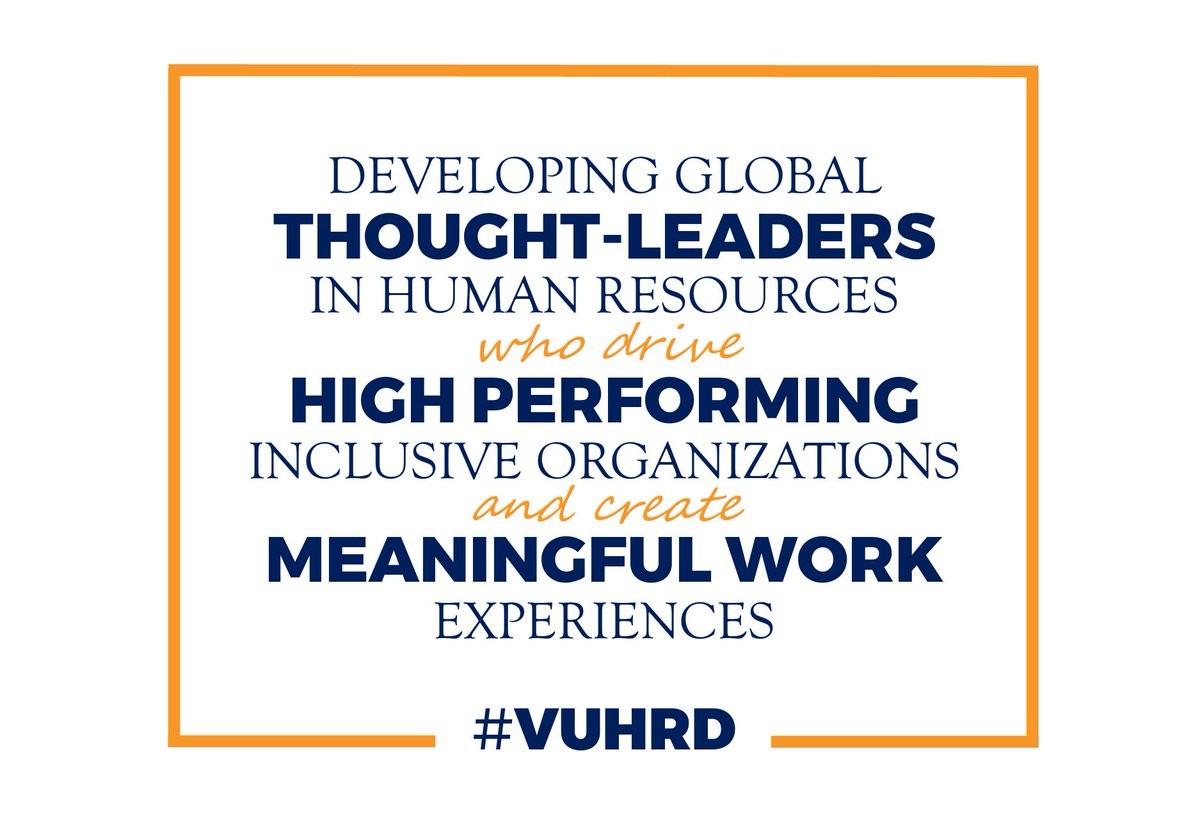
The V illanova Graduate Program in Human Resource Development (HRD) is committed to its vision of developing global thought-leaders who drive high performing, inclusive organizations and create meaningful work experiences.
It is our mission to develop HR leaders through evidence-based education and applied experiences in functional and strategic human resource management, within dynamic organizational environments. We believe strongly that the people in every organization are the greatest asset of that business and to achieve success, the business must not only leverage but support, motivate, and develop those people. We educate our students on the research that supports these beliefs and provide opportunities for experiences to explore the application of these beliefs and the foundations of strategic human resources in our classrooms.
Our program's balance of theory and practicum, along with faculty who are active in the industry, provides a focus on emerging trends in this evolving field to prepare our students for the dynamic human resources profession. Villanova HRD fosters development of knowledge and skills that can be applied to the rapidly changing field, from law and regulation to human behavior and business.
With more than 3,000 HRD graduates in businesses ranging from healthcare to technology and finance, our students have enjoyed tremendous career success and are now leaders in the field who return to contribute knowledge, guidance and expertise to our students.
Take classes on campus or online! At Villanova, we value learning together, that's why even our online courses are synchronous, meaning you will meet live virtually each week with your instructor and classmates.
Join Us for a Virtual Information Session
Lean more about the Villanova Graduate Human Resource Development program and the application process. We will discuss curriculum, ways to specialize the degree, flexibility in scheduling, and the opportunities for growing your career through development and the Villanova HRD Network. We save plenty of time for Q & A. All attendees will receive an application fee waiver code. Space is limited for these events, so register now and we'll send you a web link to participate and reminder messages. All times Eastern Time.
WHY VILLANOVA HRD?
Mission to develop hr leaders.
- It is our mission to develop HR leaders through evidence-based education and applied experiences in functional and strategic human resource management within dynamic organizational environments.
- We believe strongly that the people in every organization are the greatest asset of that business and to achieve success, the business must not only leverage but also support, motivate and develop those people.
- Are you looking for training in human resource development? We educate our students on the research that supports these beliefs and provide opportunities for experiences to explore the application of these beliefs and the foundations of strategic hr topics in our classrooms.
Experience and Extensive Alumni Network
- Established in 1980, the Villanova HRD Program is one of the longest-running graduate human resource programs in the country.
- With more than 3,000 HRD graduates, you will be joining a vast alumni network of HR professionals leading human resources in organizations globally.
Flexibility to Fit Your Schedule
- Our flexible eight-week class format allows students to balance their academic, professional and personal lives.
- Earn your MSHRD degree in two years or attend part-time and take up to four years for completion.
- All programs are offered on campus or fully online . Our online courses are synchronous, meaning you will meet live virtually each week with your instructor and classmates.
- We do not require the GRE and offer an easy online admission process . You can apply to begin when you are ready, Fall, Spring or Summer.
Tailored Program to Match Your Career Goals
Tailor the HRD program to fit your career goals by earning a graduate certificate in a concentration area independently or in conjunction with the Master's in Human Resources Development. We offer four certificates to fit your human resource administration interests:
- HR Business Partner
- HR Leadership
- Inclusion & Diversity Strategy
- Organization Development
Faculty Invested in Your Success
- Learn from both active practitioners working in the field and research faculty conducting research used in organizations today.
- Our faculty are willing mentors who are invested in your success!
SHRM and HRCI Certified
- All classes in the program are SHRM and HRCI certified.
- You can earn recertification credits while taking our classes.
Creating Diverse, Inclusive Work Environments
Explore your options.
- MASTER OF SCIENCE IN HUMAN RESOURCE DEVELOPMENT (MSHRD)
- HR BUSINESS PARTNER CERTIFICATE
- HR LEADERSHIP CERTIFICATE
- INCLUSION & DIVERSITY STRATEGY CERTIFICATE
- ORGANIZATION DEVELOPMENT CERTIFICATE
- COMBINED BACHELOR/MASTER PROGRAMS
Important Notices for Distance Education Students
The following includes important information for students participating in online courses, online programs and/or on-ground clinicals or practicums while physically located outside of Pennsylvania.
Read the Notices for Distance Education Students
RELATED TOPICS
- MS IN HR DEVELOPMENT
- GRADUATE CERTIFICATES
- COMBINED PROGRAMS
- RESOURCES AND OPPORTUNITIES
- MEET OUR FACULTY AND STAFF
- HEAR FROM OUR GRADUATES
- APPLICATION DATES AND TERM STARTS
- HR DEVELOPMENT SERIES
Human Resource Development St. Mary's Hall, Suite 119 Villanova University 800 Lancaster Avenue Villanova, PA 19085
Questions about your application? Email [email protected] .
- Graduate Human Resource Development Home
- Master of Science in Human Resource Development
- Graduate Certificates
- Combined Bachelor/Master Programs
- Resources and Opportunities
- Faculty and Staff
- Hear from Our Graduates
- HRD Fall Development Series
FOLLOW VILLANOVA HRD
The hrd corner blog.

Visit the HRD Corner ! We use this blog to share our thoughts on the world of HR, share alumni, student and faculty stories, and to keep you informed about our program and upcoming events throughout the year!
New courses begin every eight weeks.
Fall I 2023
- Application Due - July 26
- Term Starts - Aug. 28
Fall II 2023
- Application Due - Sept. 20
- Term Starts - Oct. 23
Spring I 2024
- Application Due - Dec. 10
- Term Starts - Jan. 22
Spring II 2024
- Application Due - Feb. 14
- Term Starts - March 18
Summer I 2024
- Application Due - April 10
- Term Starts - May 13
Summer II 2024
- Application Due - June 5
- Term Starts - July 1
Fall I 2024
- Application Due - July 24
- Term Starts - Aug. 26
Fall II 2024
- Application Due - Sept. 18
- Term Starts - Oct. 21
Questions about your application? Email us !
Begin your application .
Register for a virtual information session .
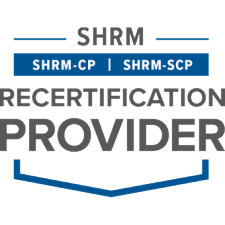
GRADUATE STUDENT RESOURCES

HOW TO APPLY

GRADUATE LIBERAL ARTS & SCIENCES

ADMITTED AND INCOMING STUDENTS

FINANCING YOUR EDUCATION

ACADEMIC CALENDAR
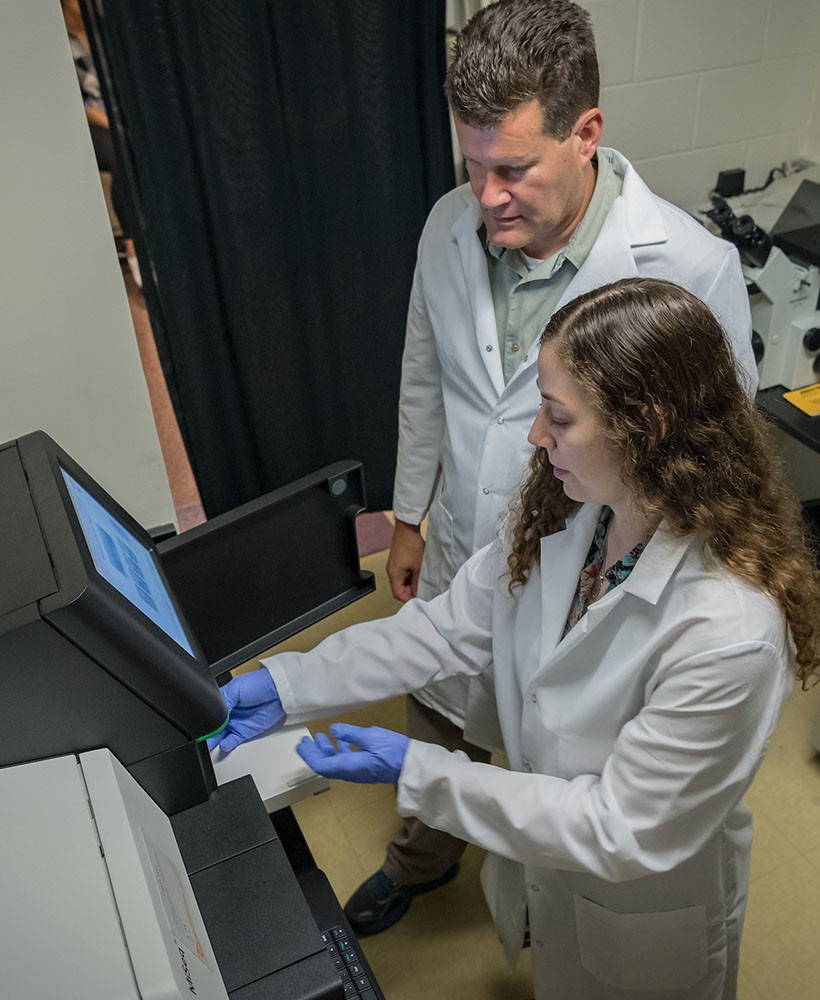
RESEARCH SUPPORT, STUDENT SERVICES, ACADEMIC POLICIES
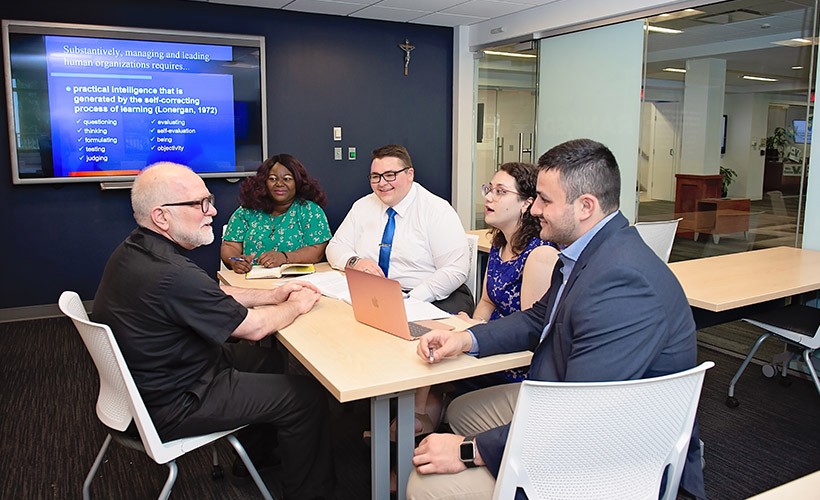
CAREERS AND PROFESSIONAL DEVELOPMENT
Online Doctorate Degree in Human Resources

Online Human Resources Doctorate Degree: An Overview
Jobs for human resources degree holders, degree requirements, prerequisites for an online human resources doctorate degree, online coursework.
- Human resources management in the 21st century.
- Compensation and benefits.
- Labor relations.
- Legal issues in human resources management.
- Technology systems in human resources and workforce development.
- Career theory and decision-making.
- Organizational behavior performance and evaluation.
- Human resources talent management.
How long does an online doctorate in human resources take to complete?
Cost and return on investment (roi), how much does a doctorate in human resources cost , how to estimate the roi of your degree, job outlook and salary, example courses.
- Advanced theoretical foundations of human resources development
- Human resources and workforce development ethical and legal issues
- Quality management and productivity
- Quantitative research techniques
- Contemporary perspectives in organizational leadership theory
What Online Human Resources Doctorate Degree Holders Have to Say
“I apply what I learned in school in everything I do at work. For example, one of the committees I’m on now is charged with a large implementation project. At the forefront of my mind are the tenets of change management and the ingredients for sustainable change. The coursework provided me the confidence and knowledge to contribute in ways that would have never been possible otherwise. I’m better at thinking through concepts and specific steps that are crucial in exacting sustainable change. I feel like I’m more valuable in teams because I bring a different perspective.“I learned a great deal about change management and theory, the importance of adequately preparing an environment and its stakeholders for change, and ways to exact healthy change. We live in a state of flux, and navigating change can be difficult. A monumental thing that stood out as I got deeper into the program was how successful change can be when organizations and their leadership teams make commitments to effectively communicate, practice transparency and honor stakeholders…not just in words, but in actions. In the real world these things don’t always happen or there wouldn’t be entire programs teaching the subject matter, but think of the possibilities if they did.”
“The business and industry training coursework was very helpful for me especially as I pursued new leadership positions in the training space at work. However, the most significant learning came through the dissertation process. From topic selection, learning and applying research practices, recognizing the value of academic writing, and ‘"owning’" my expertise, I had no other option but to pull from my own motivation and efficacy. I routinely use all of the skills gleaned from this process today - post graduation: initiative, composure, persistence, confidence, and empathy.”
“A piece of advice I would have for prospective students would be to select a research topic before starting the program so you can focus on that topic throughout the program.“Something I learned in school that applies to my work today is the importance of understanding what I am attempting to solve when designing programs or creating strategies.”
Ph.D. Program in Human Resources
Cornell university’s ilr school: a world leader in human resource management.
Cornell University is among the world’s most prestigious research universities — and its ILR School is the HR Studies leader. Cornell ILR focuses on the world of work with doctoral programs not only in HR, but also related fields such as organizational behavior, dispute resolution, labor relations, public policy and social statistics.
In a 2009 poll posted on the Academy of Management's HR Division listserv, members were asked, “If you were advising a top-notch student interested in pursuing a graduate degree in HR, what three schools would you recommend?” Scholars ranked ILR’s HR program as their top pick , citing Cornell’s program more frequently than any other.
Why Cornell’s Human Resources Ph.D. Program?
- Unmatched program breadth and depth
- Access to top scholars
- Guaranteed full funding
- Academic careers at top-notch universities
An Alumnus Perspective
“I had an awesome experience at Cornell. The professors were terrific, as were my fellow Ph.D. students. I could not have been better prepared to launch my career in teaching and research in human resource management.”
— Jeff Ericksen, Assistant Professor, School of Labor and Industrial Relations, Michigan State University (HR Ph.D. graduate)
Application Deadline: December 15th
Contact information.
For more information on Cornell's Ph.D. in Human Resources program, please contact:
ILR Graduate Programs Office Cornell University 218 Ives Hall Ithaca, NY 14853
ph: (607) 255-1522 fax: (607) 254-5225 email: [email protected]
Doctor of Education Leadership
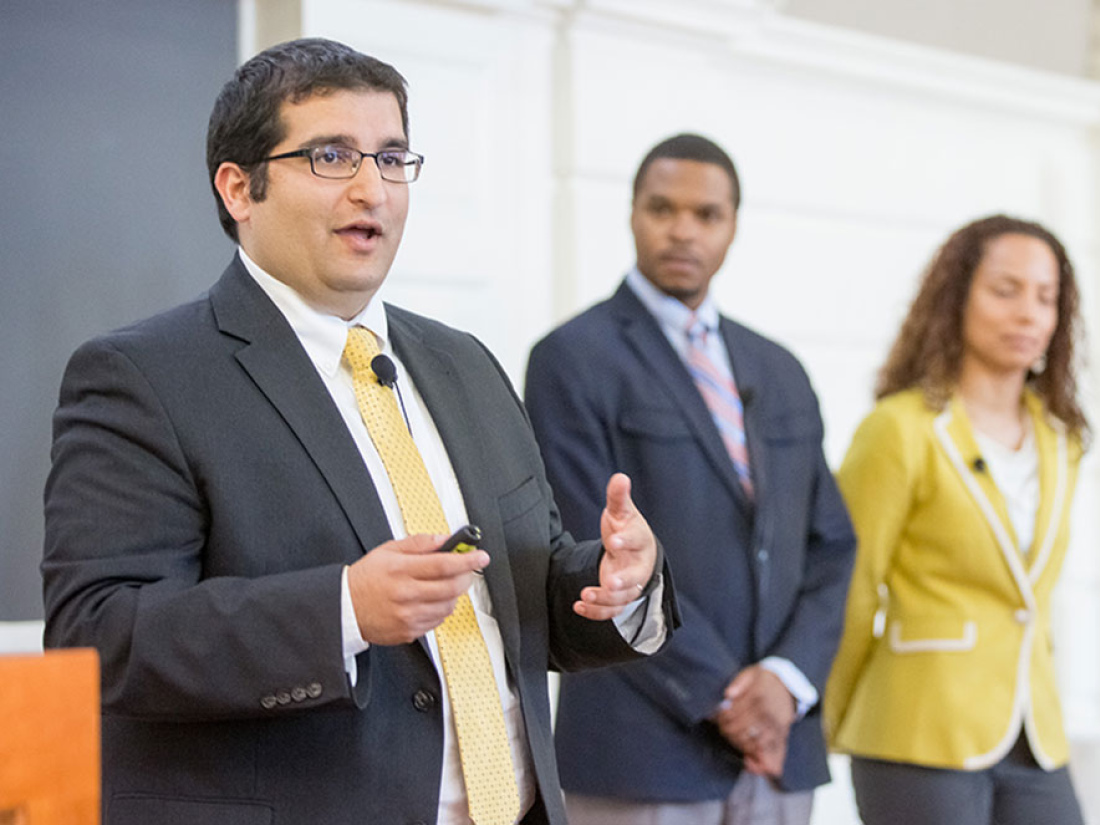
Additional Information
- Download the Doctoral Viewbook
- Admissions & Aid
America needs transformative leaders in preK–12 education whose passion for education quality and equity is matched by a knowledge of learning and development, the organizational management skills to translate visionary ideas into practical success, and a firm grasp of the role of context and politics in shaping leadership. Graduates of the three-year, multidisciplinary Doctor of Education Leadership (Ed.L.D.) Program at the Harvard Graduate School of Education will be prepared to become those leaders.
The Ed.L.D Program — taught by faculty from the Harvard Graduate School of Education, the Harvard Business School, and the Harvard Kennedy School — will train you for system-level leadership positions in school systems, state and federal departments of education, and national nonprofit organizations. Ed.L.D. is a full-time, three-year program built on a cohort learning model. Cohorts consist of up to 25 students from diverse professional backgrounds (including district/charter management leaders, nonprofit directors, principals, teachers, and policy researchers) who progress through the program together.
All Ed.L.D. students receive a full tuition funding package plus stipends, work opportunities, and a paid third-year residency at a partner organization.
The Ed.L.D. Program prepares graduates to do work for the public good in the American public education sector, whether that be at the system or state level. Specifically, the program is designed to accelerate the progress graduates make toward achieving meaningful impact in influential roles and/or crossing boundaries in the following spaces in the public education sector:
- PreK–12 district or CMO leadership roles : superintendent of schools, chief academic officer, and/or deputy superintendent
- Foundation/philanthropy roles: director, president and CEO, senior fellow
- Education nonprofit roles : president or executive director of backbone or collective impact organizations which support preK–12 schools. Ed.L.D. graduates will lead education nonprofits that explicitly focus on improving outcomes and opportunities for children, families, and communities.
- State or federal education leadership roles : commissioner or deputy commissioner roles. Could also include public education advocacy or education policy advisers to senior government officials.
- Social Entrepreneurship and Innovation roles: Founder, CEO, president
Curriculum Information
The Ed.L.D. curriculum is a balance of multidisciplinary coursework and practice-based learning. Core courses and electives are taught by recognized leaders from across Harvard’s graduate programs in fields like data-based education reform, organizational change and innovation, and effective leadership strategies for urban schools. You will develop and test your leadership skills through team projects and an immersive third-year residency.
All students in the cohort take the same classes in four foundational content areas: learning and teaching, leadership and organizational change, politics and policy, adult development, and leadership inside and out (including one-on-one executive coaching). Courses taken during the first-year focus on practice-based learning and serve as the framework of your first-year experience.
Sample HGSE Courses
- Leading Change
- How People Learn
- Ed.L.D. Proseminar
- Leadership, Entrepreneurship, and Learning
- Race, Equity, and Leadership
- Practicing Leadership Inside and Out
- Sector Change
- The Workplace Lab for System-Level Leaders
View all courses in the Academic Catalog.
Each cohort member works with program advisers to choose an individualized sequence of electives from any of the Harvard graduate schools. You will work closely with the program faculty and staff during your second year to determine the best match with a partner organization for your third-year residency. Matches are driven by mutual interest between the resident and the partner organization, and each student's career and learning goals and geographic preferences.
- Second Year Practicing Leadership Inside and Out
- Driving Change
- Education Sector Nonprofits
- Negotiation Workshop
- Coaching with Equity in Mind
- Ethnic Studies and Education
- Deeper Learning for All: Designing a 21st Century School System
- Institutional Change in School Organizations, Systems, and Sectors
You will take part in a 10-month paid residency at one of our partner organizations. There, you will work on a strategic project which synthesizes your experience and learning into a written Capstone project. You will stay connected to your Ed.L.D. cohort and HGSE through technology and by returning to Harvard periodically for intensive workshops.
Paid Residency
Our partner organizations include school systems and departments of education, as well as some of the nation's most influential and dynamic nonprofit, mission-based for-profit, and philanthropic organizations.
You will be intentionally pushed out of your comfort zones and asked to work systemically and make a significant contribution to the partner organization. In addition, the residency will provide you with the professional mentoring, practical experiences, and network of connections they need to position themselves as future leaders in the education sector.
Strategic Project
You will define (with supervisors from your partner organization) a strategic project on which to focus. You will have the opportunity to lead one or two major efforts on behalf of the organization, such as the creation or implementation of current initiatives. The project allows you to practice and improve leadership skills, add important value to the mission and strategy of the partner organization, work systemically, and hold high-level accountability.
During the residency period, you will produce a written Capstone. The Capstone is a descriptive, analytic, and reflective account of your third-year leadership contributions to a strategic project within an Ed.L.D. partner organization. It is a demonstration of your ability to engage others, develop strategy to successfully address and diagnose challenges, work toward a vision and goals, and learn from the results.
Sample Topics
- Accountability, Coherence, and Improvement: Leadership Reflection and Growth in the Los Angeles Unified School District
- Leadership Development for Entrepreneurial Education Leaders Working to Build Public & Private Sector Support
- Disrupting Teacher Preparation: Lessons in Collaboration and Innovation Across the Learning to Teach Community of Practice
- Pursuing Educational Equality for English Language Learners
Sample Summaries
- Breaking Down Silos in a School District: Findings from an Ed.L.D. Project in Montgomery County
- Expanding Students' Access to Meaningful STEM Learning Opportunities Through Strategic Community Partnerships
- Developing a New Teacher Leadership and Compensation System in Iowa: A Consensus-Based Process
- Finding Great Teachers for Blended-Learning Schools
GSE Theses and Dissertations from Digital Access to Scholarship at Harvard (DASH)
Program Faculty
Ed.L.D. students learn with renowned faculty from the Harvard Graduate School of Education, Harvard Business School, and Harvard Kennedy School. Faculty from the three schools share their individual expertise in the Ed.L.D. Program and work collaboratively to provide a challenging and coherent experience for students. Faculty who teach in the Ed.L.D. core curriculum and advise Ed.L.D. students include:
Faculty Director

Frank D. Barnes
Frank Barnes is faculty director of the Doctor of Education Leadership Program. He has over 30 years experience as an educator, researcher, and organizer. As a chief accountability officer, he led turnaround efforts for large public school districts, including Boston Public Schools and Charlotte-Mecklenburg Schools.
Kathryn Parker Boudett

Ebony N. Bridwell-Mitchell

Jennifer Perry Cheatham

Elizabeth City


Candice Crawford-Zakian

Marshall Ganz

Adria D. Goodson
Deborah helsing.

Monica C. Higgins

Deborah Jewell-Sherman

Lisa Laskow Lahey

Mary Grassa O'Neill

Irvin Leon Scott

Catherine Snow

Michael L. Tushman
Martin west.

Introduce Yourself
Tell us about yourself so that we can tailor our communication to best fit your interests and provide you with relevant information about our programs, events, and other opportunities to connect with us.
Program Highlights
Explore examples of the Doctor of Education Leadership experience and the impact its community is making on the field:

Do We Need Happiness Teachers?
After a trip to meet with the Dalai Lama, an Ed.L.D. student says we do

Combatting Chronic Absenteeism with Family Engagement
As post-COVID absenteeism rates continue unabated, a look at how strong family-school engagement can help
The PhD in Organizational Development and Change is a multidisciplinary degree for scholar-practitioners who want to expand their capacities to bring about positive change in today’s organizations and communities. The degree requires completion of the following:
- New Student Orientation (NSO) and Learning Plan
- Interdisciplinary foundations and leadership courses
- Organizational Development & Change emphasis courses
- Advanced research studies, including a Portfolio Review and Comprehensive Assessment
- Elective coursework
- Dissertation
Our PhD offers a master’s along the way . Students have the option to fulfill elective requirements choosing not just from HOD prefix electives but from any of the general electives offered in the Leadership for Change program.
OD&C students may structure their elective choices to fulfill an optional OD&C concentration in one of the following:
- Inclusive Leadership for Social Justice
- Media, Technology, & Innovation
- Organization Development
- Sustainability Leadership
Or one of these concentrations as listed below:
- Community College Leadership for Change
- Creative Longevity & Wisdom
- Dual Language
- Leadership of Higher Education Systems
- Somatics, Phenomenology and Communicative Leadership
Students develop the knowledge to help organizations and communities thrive in today’s complex world. Emphasizing a multidisciplinary integration of human and organizational systems, this degree creates new approaches to inclusive leadership and sustainability. Students gain knowledge, practice, and research skills to empower themselves and others and meet today’s organizational and social challenges.
Graduates of the program are uniquely qualified to become leaders in their chosen professions. They are consultants, educators, entrepreneurs, coaches, and leaders in human resources, health care, and at nonprofits.
Required Coursework
Effective date: 09/01/2023
Required Foundations (24 credits)
- HOD-699 Foundations of Doctoral Study 4 semester credits
- HOD-800 Doctoral Competencies and Scholarly Inquiry 4 semester credits
- HOD-803OD Practicum in Organization & Systems Change 4 semester credits
- HOD-805 Foundations of Organization Studies 4 semester credits
- HOD-806 Systems Approaches to Leadership, Organizations, and Society 4 semester credits
- HOD-807 Social & Ecological Justice 4 semester credits
Organizational Development and Change course
- HOD-822 Organization Development and Change 4 semester credits
Required Advanced (16 credits)
- HOD-810 Portfolio Review 2 semester credits
- HOD-881 Qualitative Research Methods 4 semester credits
- HOD-882 Quantitative Research Methods 4 semester credits
- HOD-891 ODC Comprehensive Assessment 4 semester credits
Choose one (for at least 2 credits) Advanced Research Methodology course:
- HOD-883AO Advanced Research Methodologies: Appreciative Organizations 2 or 4 semester credits
- HOD-883AR Advanced Research Methodologies: Action Research 2 or 4 semester credits
- HOD-883AS Advanced Research Methodologies: Applied Somatics 2 or 4 semester credits
- HOD-883CH Advanced Research Methodologies: Methodologies for Studying Change 2 or 4 semester credits
- HOD-883CP Advanced Research Methodologies: Critical Participatory Action Research 2 or 4 semester credits
- HOD-883EH Advanced Research Methodologies: Ethnography 2 or 4 semester credits
- HOD-883GT Advanced Research Methodologies: Grounded Theory 2 or 4 semester credits
- HOD-883LR Advanced Research Methodologies: Liberatory Research 2 or 4 semester credits
- HOD-883NI Advanced Research Methodologies: Narrative Inquiry 2 or 4 semester credits
- HOD-883PG Advanced Research Methodologies: Phenomenography and Variation 2 or 4 semester credits
- HOD-883PH Advanced Research Methodologies: Phenomenology 2 or 4 semester credits
- HOD-883QA Advanced Research Methodologies: Advanced Qualitative Methods 2 or 4 semester credits
- HOD-883ST Advanced Research Methodologies: Advanced Quantitative Methods 2 or 4 semester credits
- HOD-883WC Advanced Research Methodologies: World Cafe 2 or 4 semester credits
Electives (24 credits)
Choose any additional 24 credits from HD/ODC concentration and elective courses listed below, additional Advanced Research Methodology courses listed above, or any general electives with ELC course prefixes.
- HOD-698 Special Topics in Academic Writing 2 semester credits
- HOD-804 Human Development 4 semester credits
- HOD-811 Advanced Human Development 4 semester credits
- HOD-812 Human Learning and Motivation 4 semester credits
- HOD-814 Gendered Identities 4 semester credits
- HOD-815 Transformative Learning 4 semester credits
- HOD-816 Post Traumatic Growth 4 semester credits
- HOD-820 Advanced Organization Studies 4 semester credits
- HOD-821 Organization Development Practicum 4 semester credits
- HOD-823 Leadership Theories and Methods 4 semester credits
- HOD-824 Social Psychology 4 semester credits
- HOD-825 Public Policy and Public Action 4 semester credits
- HOD-826 Social Change 4 semester credits
- HOD-829 Praxis II 4 semester credits
- HOD-830 Creativity and Innovation in Organization Design 4 semester credits
- HOD-831 Structural Inequality and Diversity 4 semester credits
- HOD-832 Advanced Systems 4 semester credits
- HOD-833 Global Systems 4 semester credits
- HOD-834 Group Dynamics and Team Learning 4 semester credits
- HOD-835 Intervention Theories and Methods 4 semester credits
- HOD-836 Culture, Technology, and Social Change in the Digital Age 4 semester credits
- HOD-837 Ethnography and Crossing Borders 4 semester credits
- HOD-838 Media, Technology and Disruptive Innovation 4 semester credits
- HOD-840 Inclusive Leadership: Transforming Self and Systems 4 semester credits
- HOD-841 Mindful Leadership 4 semester credits
- HOD-843 Ecological Studies 4 semester credits
- HOD-844 Leadership for Social and Ecological Sustainability 4 semester credits
- HOD-845 Social and Ecological Sustainability: Theory and Practice 4 semester credits
- HOD-846 Intervening in Systems 4 semester credits
- HOD-847 Theoretical Foundations of Evidence Based Coaching 4 semester credits
- HOD-848 Organizational and Leadership Coaching 4 semester credits
- HOD-849 Evidence Based Coaching Praxis 4 semester credits
- HOD-850 Creative Longevity and Wisdom 4 semester credits
- HOD-851 Comparative Wisdom Traditions 4 semester credits
- HOD-852 Spiritual Psychology 4 semester credits
- HOD-853 Spiritual Practice and Social Justice 4 semester credits
- HOD-854 Somatics in Human and Organization Development 4 semester credits
- HOD-856 Writing Phenomenology 4 semester credits
- HOD-857 Adult Development 4 semester credits
- HOD-859 Communications Theory and Practice 4 semester credits
- HOD-860 Advanced Topics 2 or 4 semester credits
- HOD-861 Advanced Specialization Studies 4 semester credits
Dissertation (16 credits)
- HOD-893 ODC Dissertation Seminar 4 semester credits
- HOD-896 Dissertation Pilot Study 2 semester credits
- HOD-897 Dissertation in Progress 0 semester credits
- RES-IRB IRB Approval for Dissertation 0 semester credits
- HOD-PA Dissertation Proposal Approval 0 semester credits
- HOD-898 Final Oral Review of Dissertation 0 semester credits
- HOD-899 Dissertation Completion 10 semester credits
Total Semester Credits: 84
Optional concentrations.
Students matriculated into the Fall 2016 catalog can concentrate their elective studies in the HD/OD&C concentrations listed below, or from any concentration offered in other School of Leadership Studies. In this way, students can individualize their doctoral program and expand their professional expertise. Each concentration typically includes a minimum of three tailored courses and access to a community of scholar-practitioners who are passionate about this specialized field of study.
Coaching Concentration
The doctoral concentration in Coaching offers an interdisciplinary approach to integrating research-based coaching theory with professional practice in organizational and individual coaching. Participants will study the core theories that underpin principle practices of individual and organizational coaching and undertake individual research to integrate theory with practice in individual and organizational settings.
Community College Leadership for Change Concentration
The doctoral concentration in Community College Leadership for Change addresses the most current issues in community colleges and builds students’ knowledge and skills as scholar-practitioners.
- ELC-747 The Community College 4 semester credits
Choose two from
- ELC-741 Ethics, Education, and Law 4 semester credits
- ELC-743 Public Policy and Practice 4 semester credits
- ELC-746 Budget and Finance 4 semester credits
- ELC-787 Redefining Curriculum 4 semester credits
- ELC-801 Assessment and Evaluation 4 semester credits
- ELC-802 Governance 4 semester credits
- ELC-803 Human Resources Management 4 semester credits
- ELC-804 Student Services/Student Success 4 semester credits
Creative Longevity & Wisdom Concentration
The goal of the Creative Longevity & Wisdom concentration is to enhance knowledge and practice in areas concerning mid-life and older adults.
Dual Language Concentration
The Dual Language Concentration offers an academic program to guide teachers, administrators, and scholar-leaders in examining the research, theory, and practices needed to develop effective K-12 dual language programs. This concentration is currently closed to new enrollments.
- ELC-736 Dual Language Foundations 4 semester credits
- ELC-737 Biliteracy Development 4 semester credits
- ELC-740 Curriculum Development for Teaching and Learning in a Global Society 4 semester credits
Inclusive Leadership for Social Justice Concentration
The doctoral concentration in Inclusive Leadership for Social Justice is designed to develop more inclusive scholar-leaders who are knowledgeable about and sensitive to the complex ways that power and injustice manifest in organizations and communities in order to co-create a more just society.
NOTE: 12 credits total required; HOD-883LR must be taken for 4 credits.
Leadership of Higher Education Systems Concentration
The doctoral concentration in Leadership of Higher Education Systems focuses students’ doctoral study on the knowledge and skills needed to become leaders and change agents in higher education institutions, such as 4-year colleges, universities, and graduate schools
- ELC-748 Higher Education Leadership 4 semester credits
- ELC-742 Organizational Theories 4 semester credits
- ELC-773 Rethinking Schools and Organizations 4 semester credits
Media, Technology, & Innovation Concentration
The doctoral concentration in Media, Technology, & Innovation is focused on the ways in which media, technology, and knowledge networks are transforming our societies, organizations, and ourselves by becoming the dominant driving force for innovation and organizational change.
Organization Development Concentration
A doctoral degree with a concentration in Organization Development (OD) prepares students to become scholar practitioners, thought leaders, and change agents in a variety of organizations-profit, non-profit, and public sectors.
Somatics, Phenomenology & Communicative Leadership Concentration
This Somatics, Phenomenology & Communicative Leadership Concentration combines and integrates scholarly theory and mastery of embodied mindful awareness (somatics) with substantial grounding in transformative phenomenology (consciousness and deep personal reflection) along with the interpretive and practical dynamics of social constructionism (Coordinated Management of Meaning (CMM), Symbolic Interactionism, and related communication and social construction disciplines). The impact of the artful blending of these three disciplines and bodies of theory is to: (1) reinforce the validity of “essence-based evidence” available through the phenomenological lens, (2) provide insights into improved research and practice through lifeworld analysis (3) improve practice skills through somatic awareness and practices (4) intensify and enhance leadership skills through increase communication practices such as CMM, (Communicative Management of Meaning) which was developed and perfected by the late Barnett Pearce, HOD Professor Emeritus, and (5) increase contemplative skills as related to research and practice based.
Sustainability Leadership Concentration
The objective of the doctoral concentration in Sustainability Leadership is to produce leaders in businesses, nonprofits, governments, and educational institutions.
10 Best PhD in Human Resources Online Programs
Are you interested in discovering how obtaining a PhD in Human Resources online could open up new and prestigious doors in your career?

Let’s explore how doctorate-level credentials could get you to the top of your field.
Editorial Listing ShortCode:
Professionals with a doctorate in Human Resources earn an average of between $60,000 and $180,000 per year (Bureau of Labor Statistics) in a variety of roles.
Universities Offering a Doctorate in Human Resources Online
Methodology: The following school list is in alphabetical order. To be included, a college or university must be regionally accredited and offer degree programs online or in a hybrid format.
1. Bellevue University
Bellevue University offers a Doctor of Philosophy in Human Capital Management. Students must complete 51 credit hours, including 2 residencies and a dissertation, to graduate. Those interested in the program must have a minimum of 5 years of professional experience and a graduate degree with a GPA of 3.0 or higher.
- PhD in Human Capital Management
Bellevue University is accredited by the Higher Learning Commission.
2. Colorado State University
Located in Fort Collins, Colorado, Colorado State University was founded in 1870.
The 60-credit PhD in Education and Human Resource Studies – Organizational Learning, Performance, and Change program is offered in cohort format by the university’s School of Education. The program can be completed in 3.75 years. Classes are held in Denver and use online tools as well.
- PhD in Education and Human Resource Studies – Organizational Learning, Performance, and Change
Colorado State is accredited by The Higher Learning Commission.
3. Liberty University
Established in 1971, Liberty University is a Christian Evangelical institution located in Lynchburg, Virginia. It is ranked among the top online universities in the country by U.S. News & World Report.
The 60 credit-hour, 100% online DBA in the Human Resources program can be completed in 3 years, with no set log in times. Students can complete coursework at their own pace.
- DBA in Human Resources
Liberty University is accredited by the Southern Association of Colleges and Schools Commission on Colleges.
4. National University
Founded in 1971, National University is a network of nonprofit educational institutions headquartered in San Diego, California. NU offers a Doctor of Business Administration in Human Resources Management and a PhD in Human Resources Management.
The DBA requires the completion of 16 courses for a total of 48 credit hours. It can typically be completed in 64 months. The PhD requires the completion of 20 courses for a total of 60 credit hours. It can typically be completed in 38 months.
- DBA in Human Resources Management
- PhD in Human Resource Management
National University is regionally accredited by the Western Association of Schools and Colleges.
5. Regent University
Founded in 1977, Regent University is a Christian institution located in Virginia Beach, Virginia.
The 60 credit-hour online PhD in Organizational Leadership with a concentration in Human Resource Development program has two 4-day residency requirements.
The program consists of core and concentration courses, a capstone project, comprehensive exam, and dissertation, with some face-to-face components.
- PhD in Organizational Leadership – Human Resource Development
Regent University is accredited by the Southern Association of Colleges and Schools Commission on Colleges.
6. University of Arkansas
Located in Fayetteville, Arkansas, the University of Arkansas was established in 1871.
The online Doctor of Education in Human Resource & Workforce Development Education (HRW DEd) program, offered by the College of Education & Health Professions, requires students to take the GRE. Students are allowed to take up to 7 years to complete the doctoral degree.
- EdD in Human Resource and Workforce Development Education
The U of A is accredited by the Higher Learning Commission.
7. University of Illinois – Urbana-Champaign
Established in 1867, the University of Illinois at Urbana-Champaign is located in the twin cities of Urbana and Champaign.
The Ph. in Human Resources program is offered by the School of Labor and Employment Relations. Students must complete 48-64 hours of coursework, a non-credit faculty-student workshop, exams, and a dissertation for graduation.
PhD in Human Resources
The University of Illinois at Urbana-Champaign is accredited by the Higher Learning Commission.
8. University of Texas – Tyler
Located in Tyler, Texas, the University of Texas at Tyler was established in 1971.
The PhD in Human Resource Development program is offered by the university’s Soules College of Business. Students are required to complete 60 credit hours, and GMAT scores are necessary for admission. Coursework can be completed in 2.5 years.
- PhD in Human Resource Development
The University of Texas at Tyler is accredited by the Commission on Colleges of the Southern Association of Colleges and Schools.
9. Walden University
Headquartered in Minneapolis, Minnesota, Walden University is an online university established in 1971.
The online DBA in Human Resource Management program has a 49-credit-hour requirement for completing the degree, with two face-to-face academic residencies. The program must be completed within 8 years unless the student’s petition for an extension.
- DBA in Human Resource Management
Walden is accredited by The Higher Learning Commission.
10. Wayland Baptist University
Located in Plainview, Texas, Wayland Baptist University is affiliated with the Stalked Plains Baptist Association. It was established in 1906,
The Doctor of Management in Human Resource Management program has a 60-credit-hour requirement consisting of 57 hours of coursework and 3 credit hours of research project work, comprehensive exams, and successful completion of an applied research project.
- Doctor of Management in Human Resource Management
Wayland Baptist University is accredited by the Southern Association of Colleges and Schools Commission on Colleges.
Online PhD in Human Resources Programs
Pursuing a PhD in Human Resources offers room to focus on a specialty that you find engaging. The fact that you’re pursuing a specialty at a doctorate level means that you should be considered a true expert in your area of focus.
Click on the area that interests you to jump to that part of the page.
- Human Resources
Compensation and Benefits
Employee relations.
- Human Capital Management
Organizational Effectiveness
Organizational leadership.
What does that mean for your career? You could become one of a very select handful of people to be considered for certain roles in organizations.
Be prepared to tackle law, psychology, negotiations, math, and pure business studies!

General human resources covers all of the aspects of managing talent within an organization. This includes everything from bringing in workers who are the right fit to creating pay scales that keep an organization competitive.
Having a doctorate-level specialty in general human resources can help position you to become a vice president of human resources operating at an executive level within an organization.
In particular, it can help equip you to lead the full scope of human resources for major corporations, institutions, and universities.

Compensation and benefits is a very relevant specialty because companies and organizations need to have smart strategies for offering fair and competitive pay and benefits.
Additionally, a company’s benefits package must be managed impeccably to ensure that resources are being used optimally. Becoming an expert can help you become a valuable asset to companies as they seek out ways to balance the need to offer generous perks with the realities of cost.

Optimizing talent is all about managing talent. This is why a specialist in employee relations is such an asset to an organization. Your PhD is can help equip you with the negotiating and strategizing skills to create satisfied, productive employees.
It can also help you become an expert at handling contracts, keeping up with compliance regulations, and developing key internal points that will be communicated across a workforce.
Human Capital Management (HCM)

Human capital management is an emerging specialty that is attracting the attention of more and more employers.
What exactly is human capital management? Obtaining a PhD in this specialty can help you become a master of a comprehensive set of organizational practices that are designed to maximize the business value of employees.
However, the focus is far from seeing employees as impersonal “assets.” The focus of this specialty is actually on recruiting and developing talent through incentives, training, and other value-building strategies.

Do you want to be the one who organizations turn to when they want a fixer? A PhD in organization effectiveness can help you become the go-to person for strategizing how to motivate, optimize, and enhance organizations.
The true skill set for this specialty revolves around achieving the outcomes that organizations want to produce.
Organizational effectiveness may be an ideal specialty if you’re focused on how to become a human resources consultant. The big perk of this is that you’ll likely be brought in when corporations need guidance regarding how to reorient toward specific outcomes.

A specialty in organizational leadership can help you become the person that leaders of corporations and organizations turn to when they want guidance and motivation for how to do what they do better.
Obtaining a PhD can help you become something of a guru to the powerful decision-makers of the corporate world.
Organizational leaders are expected to have the tools to help leaders set strategic goals that impact every level of an organization. They are also expected to bring insights and motivation to the table that will help leaders put new ideas in motion.
Experts in organizational leadership have the unique distinction of being able to guide management approaches that work for both individuals and groups. Expect to be brought in during transitions and growth points.
Common Courses for PhD Human Resources Programs

The path to getting a PhD in Human Resources is often paved with some of the most interesting courses a student can take. You will likely dabble in everything from high-level business theory to motivational psychology by the time you emerge as an expert in your field.
Everything you study will probably have a distinct people-oriented angle! Here’s a look at some of the courses you may take as a Human Resources PhD student:
- Compensation and Benefits cover in-depth how to build and manage full-scale compensation and benefits with considerations given to legal requirements and accounting principles.
- Conflict Resolution covers effective ways to communicate and bring forth resolutions when people within a workplace come to the table.
- Workplace Ethics dives into the legal and ethical requirements in workplace settings.
- Employment Law is designed to equip students with the right tools to walk into situations that require action or mediation.
You should have well-rounded expertise that covers core topics like management, compensation models, and employee relations when finished with your program.

Your courses will also help you gain familiarity with important workplace topics, such as sexual harassment in the workplace, employee theft, union regulations, employee morale, bonuses, and retirement.
Dissertation seminars are also included in most PhD in Human Resources curriculums. You can work toward doing independent, cutting-edge research that may ultimately contribute to the human resources field!
PhD in Human Resources Careers
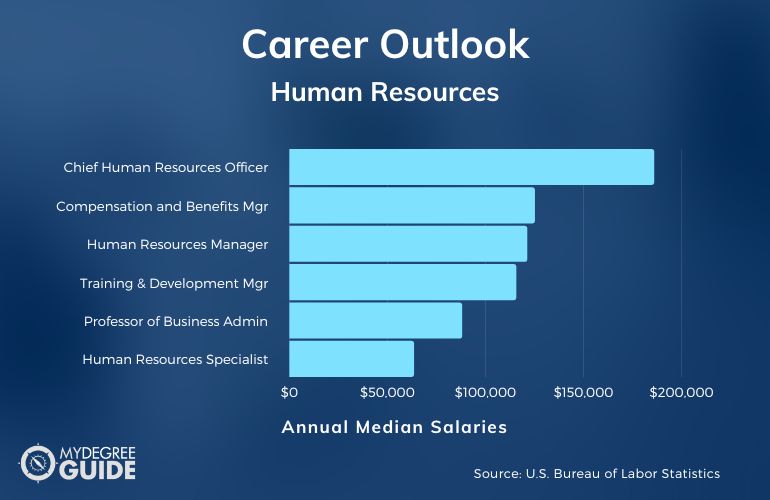
A PhD in Human Resources is a particularly robust area of study because it opens up possibilities in both the corporate and academic worlds. Many people who pursue this path do so because they want to reach executive-level positions.
Others would like to teach business classes on an academic track.
Being a vice president of human resources on the executive team of a large corporation is typically the goal that people have in mind when they pursue a PhD in human resources.

Roles as a human resources leader for a school district, hospital, university, or municipal government are all on the table.
A PhD in Human Resources may also be attractive to those who are interested in providing executive and leadership training on a consulting basis. You might start your own consulting practice, publish books, and host workshops.
Additionally, a PhD can qualify you to pursue teaching positions within the business departments at colleges and universities.
PhD in Human Resources Salary

Let’s discuss what salaries can look like for those who reach the upper echelons on the human resources profession. Yes, the pay can be generous once you get to this level.
Here’s a look at average salary data from the U.S. Bureau of Labor Statistics:
- Chief Human Resources Officer: $185,950
- Compensation and Benefits Manager: $125,130
- Human Resources Manager: $121,220
- Training and Development Manager: $115,640
- Professor of Business Administration: $88,010
- Human Resources Specialist: $63,490
Those who chose to parlay their expertise into careers focused on teaching or consulting may earn income through published works and paid workshops.
Professional Organizations for Those With an HR Doctorate Degree

As a leader in your profession, you’ll probably want to become engaged with other professionals through professional organizations. The field of human resources has some of the most robust professional organizations around.
Here’s a look at groups to consider for everything from personal development to networking:
- The Academy of Human Resources Development (AHRD) serves thousands of HR professionals around the world by fostering the development and study of theories, practices, techniques, and processes in the field of human resources.
- The Association for Talent Development (ATD) is the world’s largest organization for professionals tasked with seeking and fostering workplace talent. Members have access to valuable resources that can be practically applied in their workplaces.
- HR People + Strategy is a network of executives and HR thought leaders that offers access to exchanges, research, and publications.
- The International Association for Human Resource Information Management (IHRIM) is a resource-rich organization that provides members with access to educational and certification programs. Additionally, members can access a professional community and invitations to conferences.
- The National Human Resources Association (NHRA) is a volunteer-based organization that offers community and career services.
- The Society for Human Resource Management (SHRM) promotes and lobbies on behalf of the HR profession. Additionally, this organization provides members with networking and certification opportunities.
Becoming connected with a professional organization is vital for those seeking prominent roles within the HR industry. One of the big perks of professional membership is that you will be invited to attend regional and national events. You may even be rewarded and recognized by an organization!
The certifications that are offered by highly recognized and regarded HR organizations can demonstrate the practical skills that accompany your PhD in human resources.
Certification and Licensure Following a Doctorate in Human Resources

Is it necessary to pursue certification and licensure after completing a human resources PhD program? Doing so can certainly make your online degree in human resources more valuable by demonstrating practical knowledge to accompany your academic pursuits.
Here’s a look at the certifications that are considered to be the most relevant:
- A Senior Certified Professional (SHRM-SCP) demonstrates one’s ability to develop strategies, lead groups, build influence, analyze performance metrics, and match HR goals to organizational goals upon receiving a passing score on the SHRM-SCP exam.
- A Senior Professional in Human Resources (SPHR) showcases a proficiency in strategy and policymaking upon receiving a passing score on the SPHR exam.
- A Senior Professional in Human Resources — International (SPHRi) showcases a mastery of high-level policymaking upon receiving a passing score on the SPHRi exam.
These certifications are considered to be résumé boosters for applicants applying to high-level HR leadership positions. Preparing for certification can be a very useful experience for adding very relevant and actionable skills and knowledge to your professional toolkit.
Accreditation for a Doctorate in Human Resources

Many people seeking HR PhDs focus exclusively on schools and programs with regional accreditation. You may be wondering if this is what you should also be doing if you’re about to pursue a degree that will position you to be an HR leader.
There’s no denying that a school with regional accreditation offers benefits that could help your degree to appear more impressive to employers. Regional accreditation requires very strict evaluation guidelines. This generally makes your degree more valuable by default.
Don’t forget that regional accreditation could be very important if you end up switching schools! That’s because your credits will transfer more easily if you begin your studies at a regionally accredited institution.
A school’s federal accreditation is all that’s necessary to participate in federal financial aid programs that are available to students.
Financial Aid for an Online PhD in Human Resources

You’re probably looking into ways to pay for a PhD in Human Resources if you feel that completing this level of education is what’s necessary to help you reach your career goals. PhD programs can be more expensive per course than other programs like a master’s in human resources online degree program .
Fortunately, PhD students have a wide variety of funding resources beyond what’s available for undergraduate students to look into. This includes things like fellowships, teaching assistantships, research assistantships, and grants.
A student studying for a PhD in Human Resources may have access to federal grants, federal loans, private loans, and institution-provided tuition assistance. There is a good chance that you will pay much less than what a college or university lists as its full-time tuition cost.
Can You Get a PhD in HR?

Yes, several colleges and universities offer PhD programs in HR. The human resources programs of most schools are closely aligned with business and management programs.
There’s a good chance that you will be taking the majority of your courses through a school’s business department. Additionally, psychology and finance courses may be a part of your full curriculum.
How Long Does It Take to Get a PhD in Human Resources?

Most PhD programs for HR require students to complete between 60 and 90 credits. The length of time it takes to finish your program will depend on your full-time or part-time status.
Most students are able to complete a PhD in Human Resources within five years. Keep in mind that you will probably be required to complete research for a lengthy, involved dissertation. Due to this, traditional or online accelerated human resources degree programs aren’t an option for students who are pursuing a PhD.
If completion speed is a primary focus for you, then you may want to consider pursuing a Doctor of Business Administration in Human Resources instead. DBA programs are professional doctorates and in many cases they don’t require a dissertation .
Is a PhD in Human Resources Worth It?

Yes, a PhD in human resources is worth it for many students. The Bureau of Labor Statistics is projecting 5% job growth in management occupations over the next 10 years. Common careers in this field include business professor, training and development manager, human resources manager, compensation and benefits manager, and chief human resources officer.
If you’re researching a PhD in Human Resources, you may have decided this is the field where you can build a career on your talent and skills.
It’s true that a PhD in Human Resources isn’t for everyone who works in the HR field. This degree often attracts those who want to be at the top of the industry.
Yes, a PhD in human resources may be worth it for someone who would like to pursue high-level HR roles within operations. This degree can help equip you to be a decision-maker and makes pursuing your PhD an especially worthwhile adventure!

- Masters Degrees
- Bachelors Degrees
- Associate Degrees
- Career Pathways Bridge Program
- Online Degree Programs: Bachelor’s, Master’s & Associate’s
- Global Offerings
- Faculty Spotlight
- Faculty Directory
- Open Faculty Positions
- Policies and Documents
- Professional Studies
- Continuing Education
- Executive Education for Industry Leaders
- High School Academy
- Areas of study
- Divisions & Departments
- Professional Pathways
- Degree Directory
- Graduate Admissions Criteria
- Graduate Application Requirements and Deadlines
- Graduate Financial Aid
- Summer Publishing Institute
- Undergraduate
- Undergraduate Admissions Criteria
- Undergraduate Application Requirements and Deadlines
- Undergraduate Financial Aid
- Transfer Students
- Adult Learning
- Your Community
- New Students
- DAUS: Military Veterans
- Global Perspective
- Graduate Events
- Undergraduate Events
- Frequently Asked Questions
- Student Success
- Academic Advising
- Student Life
- Resources and Services
- University Life
- Arts, Culture, and Entertainment
- Health and Wellness
- Studying in New York City
- Travel and Transportation
- Policies and Procedures
- NYU SPS Wasserman Center
- Career Success
- Industry Engagement
- Hire NYU Talent
- Faculty Engagement
- STUDENTS & ALUMNI: GET STARTED
- Events Central
- Office of Events
- Meet the Team
- SPS Conference Room and Event Spaces
- Event Request Form
- Event Guidelines
- Conferences
- Hospitality Conference
- Capital Markets in Real Estate
- Women in Real Estate
- REIT Symposium
- NYU Coaching and Technology Summit
- Future Workforce Global Summit
- NYU SPS Events
- Undergraduate Convocation
- Graduate Convocation
- Student Events
- Capstone Fair
- Alumni Advantage
- Alumni Stories
- Current Alumni
- Give to NYU SPS
- Parents Council
- SPS Reunion
- NYU SPS Home
- MS in Human Resource Management and Development

Master’s (MS) in Human Resource Management and Development
100% online, on-site, and hybrid study options.
The MS in Human Resource Management and Development (HRMD) is designed to address the growing demand for strategic human resource professionals with specialized expertise in effectively leading and managing talent in today’s global organizations. Taught by leading scholar-practitioners in human capital management, this human resources masters program explores the principles of management and organizational behavior, introduces students to data-driven metrics and managerial decision making, and delves into business strategy and ethics to provide students with a significant competitive advantage to succeed in the fast-changing world of business.
As of Fall 2024, this degree is no longer accepting new students. We encourage you to explore our new MS in Human Capital Management , featuring a curriculum shaped by the realities of today's field and taught by industry experts deeply engaged with the future of work. If you have questions or concerns, please contact the Office of Admissions at 212-998-7100 or [email protected] .
Critical Knowledge
This HR masters degree provides critical knowledge and skillsets in leveraging data and human capital to drive organizational strategy, efficacy, and impact. Students learn how to quantify all aspects of decision-making, provide organizational assessments, develop and lead high-performing teams, and measure the impact of talent development.
Who Should Consider Earning the MS in Human Resource Management and Development?
The MS in Human Resource Management and Development is designed for new or recently promoted professionals who wish to understand and develop strategic human resource business competencies. Additionally, this program is beneficial for senior HR professionals who wish to explore topics on executive coaching, HR analytics, DEI, and future trends in human capital management.
VIEW FULL CURRICULUM AND DEGREE REQUIREMENTS>
Career and job opportunities.
Our students and alumni now work with some of the top firms and their human resources departments including:
GLOBAL FIELD INTENSIVES
The Human Capital Management (HCM) department provides students with unique opportunities to pursue their academic and professional interests abroad through Global Field Intensives (GFI). These immersive courses of study allow students to study and experience first-hand how aspects of human capital management are applied in varying global cities and countries. Site visits at each destination translate ideas into action, and students network with speakers and organizations to advance their academic and professional contacts.
ALUMNI PROFILES
Batol khan mohammad, ms in human resource management and development '18.
MS in Human Resource Management and Development alum Batol Khan Mohammad moved to the US from Afghanistan in 2015. She enrolled in the program while working full time. Since graduating, Batol has served as a human resources business partner (HRBP) at GroupM and a human resources director at Archetype. She attributes many of the classes she took at NYU SPS for playing a crucial role in guiding her career path. She holds the title of global human resources business partner (HRBP) at Dynamic Yield, a Mastercard company. In her spare time, she enjoys cooking, plants, and spending time with family.
Edafe Okporo
Ms in human resource management, '22 alum.
MS in Human Resource Management '22 Alum Edafe Okporo is a global gay rights activist and one of the country's leading voices on the issue of displacement. In 2022, his book Asylum: A Memoir & Manifesto , an urgent call to action for immigration reform, was published by Simon & Schuster. In 2020, Okporo was featured in The New York Times when he was awarded the David Prize, a celebration of individuals and ideas to create a better, brighter New York City. He is the founder of Refuge America and The Pont, a diversity and inclusion consulting company.
FACULTY: Experts in their fields
Michael valentine, clinical assistant professor, human capital programs.
Mike Valentine, a Managing Partner at Truedge Consulting and a Clinical Assistant Professor in the Human Capital Program at NYU School of Professional Studies, has an extensive career as a management consultant, executive coach, and human resource leader.
FREQUENTLY ASKED QUESTIONS
What does human resource management and development really mean.
Human Resources Management and development encompasses both the function that focuses on the strategic management of the organization’s talent as well as Human Resource Development which is responsible for supporting the alignment between the organizations objectives and developing employee capability.
What’s SHRM-Aligned curriculum mean for me?
The courses that make up the MS degree incorporate the elements of the Society of Human Resource Management’s competency model. This alignment provides ensures students will be exposed to key skills necessary for future success in the field of HRM practice.
Why pursue a career in human resource management and development?
HRMD allows practitioners to contribute to an organizations success in many ways. It is the essential link between employee contribution and the organizations strategic goals, its values and mission. Because HRMD touches so many aspects of the business, practitioners in this field can work in a variety of roles that fit their strengths and interests.
What courses are available through this degree?
Just as the roles in the HRMD field vary so too are the courses available for students. Courses include all aspects of HR practice like organizational effectiveness, executive coaching, HR analytics and Managing Diversity and Inclusion. They cover the technology of HR, employee behavior, organizational change, data analytics, and training and development. All courses provide a global perspective for practice anywhere in the world.
What types of jobs are available after earning this degree?
Students may pursue roles as an HR business partner supporting an organizational unit, as a training and development or recruiting specialist focused of development or talent acquisition. Other roles might include HR technology, or HR generalist supporting many areas of the function. Whatever your position you will likely be involved in projects that have organization wide impact and collaborate with colleagues frorm other disciplines to achieve the desired results.
Is a career in human resource management and development rewarding?
Absolutely! The HRMD profession is unique in the fact that it supports the business in many ways. If you are energized by motivating others and don’t want to be locked into one role, HRMD might be the career for you. Successful practitioners often find themselves at the center of all aspects of organizational life and are rewarded by the varied way they can make a difference in their organizations.
LET US HELP
Welcome to Capella
Select your program and we'll help guide you through important information as you prepare for the application process.
FIND YOUR PROGRAM
Connect with us
A team of dedicated enrollment counselors is standing by, ready to answer your questions and help you get started.

- PhD in Business Management
- Human Resource Management
Human Resource Management Doctor of Philosophy in Business Management
Capella’s online PhD in Business Management, Human Resource Management equips you with skills to develop winning teams and empower people to do their best work. This program builds on a curriculum of ethics, research, and practice in the human resource field – including a focus on diverse perspectives, new technologies, and emerging trends in the workplace. Our rigorous coursework will help you fuse theory and practice to form a basis for your own research and become an expert in global workforce issues.
Virtual Residencies
Network with faculty and peers, and gain access to valuable resources to use during your program and beyond, through three doctoral virtual residencies.
Research mentor
Maintain progress through your dissertation; we’ll pair you with an academic mentor who can help you keep your momentum.
Stay on track with your academic goals and dissertation; we’ll help you organize your work into manageable segments.
Apply today with no application fee.
At a glance
- 11 Core courses
- 12 max transfer credits
- 4 Specialization courses
- 1 Elective course
- 3 Virtual Residencies
Comprehensive exam
Dissertation
- ACBSP-accredited
Reduce your tuition by $20,000
Enroll in a qualified program and apply for a $20K Capella Progress Reward, a scholarship to help fund your doctoral degree. Eligibility rules and exclusions apply. Connect with us for details.
Courses and skills
Explore human resource management courses.
- This program requires a total of 90 quarter credits
- You’ll need to complete 11 core courses, four specialization courses, one elective course, three virtual residencies, one comprehensive exam and one dissertation
View all courses
What you'll learn
This specialization prepares you to lead high-performance teams in diverse business settings. You’ll learn practical solutions to workplace challenges, evaluate new technology trends, and develop a systematic approach to problem-solving in the field.
On successful completion of this program, you should be able to:
- Synthesize multidisciplinary theories that inform and shape theory and practice to attract, develop, and retain a global work force
- Synthesize emerging trends and technological influences to advance the theory and practice of global Human Resource Management
- Evaluate diverse demographic and cultural perspectives to advance the body of knowledge and practice in global human resource management
- Exhibit proficiency in academic research, writing, and critical thinking skills
- Evaluate ethical theories and frameworks that guide human resources practices in the 21st century
- Integrate research and practices into the development of adaptive and innovative global workplace environments
Review the Capella career exploration guide to learn more about this program and professional paths to explore.
Tuition and learning format
How much does the phd in business management cost.
The total cost of your degree will depend on academic performance, transfer credits, scholarships and other factors. See GuidedPath cost information below.
A structured learning format with an active peer community and faculty guidance. We’ll set the schedule, you meet the deadlines.
- Based on the quarter system; 1-2 courses per 10-week quarter
- 1 semester credit = 1.5 quarter credits
- Weekly assignments and courseroom discussions
- Pay for what you take, price varies by courseload or term
$985 per credit, $5,000 quarterly tuition max, 75 coursework credits, 12 max transfer credits
Learn more about GuidedPath »
Tuition breakdown
Program phases.
$985 Per quarter credit
75 coursework credits
Per quarter credit
$2955 Per quarter
Per quarter
Resource kit fee
$175 Per quarter
Coursework phase only; includes eBooks, textbooks, interactive media, software, course packs, articles, test kits, and other instructional materials
Application fee
$0 no application fee
no application fee
Tuition and program length are unique to you
Your total tuition and program length depend on a variety of factors:
- The program specialization you choose
- Scholarships and finances
- Prior coursework
- Transfer credits
- Employer and/or military benefits
- Number of quarters spent working on dissertation
- Complexity of your dissertation
- Academic performance
- School/work/life balance
- Unexpected life events
About cost scenarios
The cost scenarios below are examples based on general program pricing and 2024–25 Capella tuition rates and assume the average number of transfer credits a student brings into the program. Pacing and pricing information is current as of Jan. 1, 2024. These rates are the same nationwide and may change depending on factors affecting program length and price. You are responsible for paying your own travel costs related to residencies, including plane, hotel, and food expenses.
To discuss whether the specialization you’re interested in has additional factors that may affect program cost and length, contact a Capella enrollment counselor.
Cost scenarios
*Eligibility rules apply. Connect with us for details.
Get the details
Connect with an enrollment counselor to further discuss the cost of the program and explore your eligibility for scholarships and discounts.
Scholarships and savings
Are there scholarships available for doctoral degrees.
Your education is an investment in your future that's within reach. There are more ways to save than you might think.
$5,000 quarterly tuition maximum
Maximize your courseload – take 6 or more credits per quarter and pay just $5,000.*
$20K toward your doctorate
Apply for a $20K Capella Progress Reward , a scholarship to help fund your doctoral degree. Eligibility rules and exclusions apply. Connect with us for details.
10% Military discount Capella offers a tuition discount to active-duty service members and their spouses, Guard and Reserve members, and veterans.
*Cost of each residency is included in the $5,000 quarterly tuition maximum; books, resource kit, travel, lodging, meals, and other expenses are not included.
Accredited and recognized
Capella is accredited by the higher learning commission..
Accreditation and recognitions provide assurance that we meet standards for quality of faculty, curriculum, learner services, and fiscal stability. See all our accreditations and recognitions .
How to apply
Phd in business management admission requirements.
Applicants must provide the following information for admission to Capella programs and specializations:
- A master’s degree from an institution accredited by an agency recognized by the U.S. Department of Education, or from an internationally recognized institution
- Your official master’s transcripts, with a minimum grade point average of 3.0 or higher on a 4.0 scale
- A valid, government-issued form of photo identification
GRE and GMAT are not required for admission.
International Student Requirements
If you completed your most recent academic coursework, degree, or credential at an institution outside the United States, regardless of your citizenship or where you currently live, you are considered an international applicant.
In addition to the above admission requirements, you will need to submit these materials:
- Minimum score on acceptable test for proof of English proficiency
- Transcript evaluation
Learn more about international student admissions .
Faculty and support
What support does capella offer online students.
Our programs are designed to meet the unique needs of doctoral students. We’ve structured the experience in manageable pieces that build on one another to help you earn your doctorate. You’ll have support from faculty, staff, and online resources along the way.
Doctoral faculty
Work with faculty members who have years of experience and specialize in their areas of expertise throughout each phase of your program, including literature review and implementation planning.
Enrollment counselors
These experts will set you up for success. They’ll help you find the right degree program and answer all your questions about Capella.
Academic coaches
Through quarterly appointments and as-needed counseling sessions, these specialists introduce you to Capella and help you tailor your program to your personal goals and experiences.
Articles and resources
Expand your perspective on academic and career topics with articles and resources from Capella University.

10 qualities to look for in a career mentor
Finding a career mentor can really help as you develop your professional skills and move up the ladder.

What’s the ROI for a PhD?
Is a PhD worth the investment of time, money, and energy?

What’s it like to be a doctoral student?
What does it take to earn a doctoral degree? Learn more about the experience and explore each step of the journey.
Career exploration
What can you do with a phd in human resource management degree.
Your education can help you reach your goals, professionally and personally. Here are some of the jobs and employment settings to consider with a PhD in Business Management, Human Resource Management.
Related job titles to explore*
- Adjunct or part-time human resource management faculty
- Full-time human resource management faculty
- Dean or associate dean of business program
- Human resource director
- Director/vice president, human resources
- Director/vice president talent acquisition
- Director/vice president labor relations
- Director/vice president EEO and/or diversity
- Director/vice president compensation and benefits
- Director/vice president human resource development
- Chief human resource officer (CHRO)
- Senior human resource manager
Employment settings to explore
- Land-based or online college or university
- Community college
- Consulting firm
- Corporation
- Nonprofit organization
- Manufacturing
- Health care organization
- Insurance firm
- Small business
- Government—local, state, federal
*These are examples intended to serve as a general guide. Some positions may prefer or even require previous experience, licensure, certifications, and/or other designations along with a degree. Because many factors determine what position an individual may attain, Capella cannot guarantee that a graduate will secure any specific job title, a promotion, salary increase, or other career outcome. We encourage you to research requirements for your job target and career goals.
Take the first step toward earning your degree and achieving your goals. {page-tel}
Are you sure you want to cancel?
You are using an outdated browser. Please upgrade your browser to improve your experience.

Health & Nursing
Courses and certificates.
- Bachelor's Degrees
- View all Business Bachelor's Degrees
- Business Management – B.S. Business Administration
- Healthcare Administration – B.S.
- Human Resource Management – B.S. Business Administration
- Information Technology Management – B.S. Business Administration
- Marketing – B.S. Business Administration
- Accounting – B.S. Business Administration
- Finance – B.S.
- Supply Chain and Operations Management – B.S.
- Accelerated Information Technology Bachelor's and Master's Degree (from the School of Technology)
- Health Information Management – B.S. (from the Leavitt School of Health)
Master's Degrees
- View all Business Master's Degrees
- Master of Business Administration (MBA)
- MBA Information Technology Management
- MBA Healthcare Management
- Management and Leadership – M.S.
- Accounting – M.S.
- Marketing – M.S.
- Human Resource Management – M.S.
- Master of Healthcare Administration (from the Leavitt School of Health)
- Data Analytics – M.S. (from the School of Technology)
- Information Technology Management – M.S. (from the School of Technology)
- Education Technology and Instructional Design – M.Ed. (from the School of Education)
Certificates
- Supply Chain
- Accounting Fundamentals
- View all Business Degrees
Bachelor's Preparing For Licensure
- View all Education Bachelor's Degrees
- Elementary Education – B.A.
- Special Education and Elementary Education (Dual Licensure) – B.A.
- Special Education (Mild-to-Moderate) – B.A.
- Mathematics Education (Middle Grades) – B.S.
- Mathematics Education (Secondary)– B.S.
- Science Education (Middle Grades) – B.S.
- Science Education (Secondary Chemistry) – B.S.
- Science Education (Secondary Physics) – B.S.
- Science Education (Secondary Biological Sciences) – B.S.
- Science Education (Secondary Earth Science)– B.S.
- View all Education Degrees
Bachelor of Arts in Education Degrees
- Educational Studies – B.A.
Master of Science in Education Degrees
- View all Education Master's Degrees
- Curriculum and Instruction – M.S.
- Educational Leadership – M.S.
- Education Technology and Instructional Design – M.Ed.
Master's Preparing for Licensure
- Teaching, Elementary Education – M.A.
- Teaching, English Education (Secondary) – M.A.
- Teaching, Mathematics Education (Middle Grades) – M.A.
- Teaching, Mathematics Education (Secondary) – M.A.
- Teaching, Science Education (Secondary) – M.A.
- Teaching, Special Education (K-12) – M.A.
Licensure Information
- State Teaching Licensure Information
Master's Degrees for Teachers
- Mathematics Education (K-6) – M.A.
- Mathematics Education (Middle Grade) – M.A.
- Mathematics Education (Secondary) – M.A.
- English Language Learning (PreK-12) – M.A.
- Endorsement Preparation Program, English Language Learning (PreK-12)
- Science Education (Middle Grades) – M.A.
- Science Education (Secondary Chemistry) – M.A.
- Science Education (Secondary Physics) – M.A.
- Science Education (Secondary Biological Sciences) – M.A.
- Science Education (Secondary Earth Science)– M.A.
- View all Technology Bachelor's Degrees
- Cloud Computing – B.S.
- Computer Science – B.S.
- Cybersecurity and Information Assurance – B.S.
- Data Analytics – B.S.
- Information Technology – B.S.
- Network Engineering and Security – B.S.
- Software Engineering – B.S.
- Accelerated Information Technology Bachelor's and Master's Degree
- Information Technology Management – B.S. Business Administration (from the School of Business)
- View all Technology Master's Degrees
- Cybersecurity and Information Assurance – M.S.
- Data Analytics – M.S.
- Information Technology Management – M.S.
- MBA Information Technology Management (from the School of Business)
- Full Stack Engineering
- Web Application Deployment and Support
- Front End Web Development
- Back End Web Development
3rd Party Certifications
- IT Certifications Included in WGU Degrees
- View all Technology Degrees
- View all Health & Nursing Bachelor's Degrees
- Nursing (RN-to-BSN online) – B.S.
- Nursing (Prelicensure) – B.S. (Available in select states)
- Health Information Management – B.S.
- Health and Human Services – B.S.
- Psychology – B.S.
- Health Science – B.S.
- Healthcare Administration – B.S. (from the School of Business)
- View all Nursing Post-Master's Certificates
- Nursing Education—Post-Master's Certificate
- Nursing Leadership and Management—Post-Master's Certificate
- Family Nurse Practitioner—Post-Master's Certificate
- Psychiatric Mental Health Nurse Practitioner —Post-Master's Certificate
- View all Health & Nursing Degrees
- View all Nursing & Health Master's Degrees
- Nursing – Education (BSN-to-MSN Program) – M.S.
- Nursing – Leadership and Management (BSN-to-MSN Program) – M.S.
- Nursing – Nursing Informatics (BSN-to-MSN Program) – M.S.
- Nursing – Family Nurse Practitioner (BSN-to-MSN Program) – M.S. (Available in select states)
- Nursing – Psychiatric Mental Health Nurse Practitioner (BSN-to-MSN Program) – M.S. (Available in select states)
- Nursing – Education (RN-to-MSN Program) – M.S.
- Nursing – Leadership and Management (RN-to-MSN Program) – M.S.
- Nursing – Nursing Informatics (RN-to-MSN Program) – M.S.
- Master of Healthcare Administration
- Master of Public Health
- MBA Healthcare Management (from the School of Business)
- Business Leadership (with the School of Business)
- Supply Chain (with the School of Business)
- Accounting Fundamentals (with the School of Business)
- Back End Web Development (with the School of Technology)
- Front End Web Development (with the School of Technology)
- Web Application Deployment and Support (with the School of Technology)
- Full Stack Engineering (with the School of Technology)
- Single Courses
- Course Bundles
Apply for Admission
Admission requirements.
- New Students
- WGU Returning Graduates
- WGU Readmission
- Enrollment Checklist
- Accessibility
- Accommodation Request
- School of Education Admission Requirements
- School of Business Admission Requirements
- School of Technology Admission Requirements
- Leavitt School of Health Admission Requirements
Additional Requirements
- Computer Requirements
- No Standardized Testing
- Clinical and Student Teaching Information
Transferring
- FAQs about Transferring
- Transfer to WGU
- Transferrable Certifications
- Request WGU Transcripts
- International Transfer Credit
- Tuition and Fees
- Financial Aid
- Scholarships
Other Ways to Pay for School
- Tuition—School of Business
- Tuition—School of Education
- Tuition—School of Technology
- Tuition—Leavitt School of Health
- Your Financial Obligations
- Tuition Comparison
- Applying for Financial Aid
- State Grants
- Consumer Information Guide
- Responsible Borrowing Initiative
- Higher Education Relief Fund
FAFSA Support
- Net Price Calculator
- FAFSA Simplification
- See All Scholarships
- Military Scholarships
- State Scholarships
- Scholarship FAQs
Payment Options
- Payment Plans
- Corporate Reimbursement
- Current Student Hardship Assistance
- Military Tuition Assistance
WGU Experience
- How You'll Learn
- Scheduling/Assessments
- Accreditation
- Student Support/Faculty
- Military Students
- Part-Time Options
- Virtual Military Education Resource Center
- Student Outcomes
- Return on Investment
- Students and Gradutes
- Career Growth
- Student Resources
- Communities
- Testimonials
- Career Guides
- Skills Guides
- Online Degrees
- All Degrees
- Explore Your Options
Admissions & Transfers
- Admissions Overview
Tuition & Financial Aid
Student Success
- Prospective Students
- Current Students
- Military and Veterans
- Commencement
- Careers at WGU
- Advancement & Giving
- Partnering with WGU
Master of Science
Online Human Resource Management Degree
Earn your master's degree in human resource management and make a difference.
This human resource management master’s degree is designed to help professionals working in human resources enhance critical leadership skills and earn the credentials they need to take their career to a higher level. If you're a current or aspiring HR leader, earning your master’s degree at WGU is a great next step in your own professional development.
To be successful in the HR field, there are certain skills that are extremely valuable. You will learn many of these skills in your human resource management program, including:
- Talent management
- HR technology
- Policy and procedure strategy
- Diversity, equity, and inclusion in growing organizations
- Global HR practices

The online master's program in HR management from WGU helps equip you with the skills and credentials you need to be successful. And your master’s degree isn’t the only credential you will earn—this degree program contains a WGU certificate in HR Technology and Analytics for Decision Making, as well as the opportunity to earn the SHRM Inclusive Workplace Culture specialty credential as part of your capstone experience, helping you boost your resume before you even graduate!
61% of graduates finish within
WGU lets you move more quickly through material you already know and advance as soon as you're ready. The result: You may finish faster.
*WGU Internal Data
Tuition per six-month term is
Tuition charged per term—rather than per credit—helps students control the ultimate cost of their HR degree. Finish faster, pay less!
Average salary increase
School of Business graduates report an average salary increase of $11,813 after completing their WGU degree.
Ready to Start Your WGU Journey?
Next Start Date: {{startdate}}
Start Dates the 1st of Every Month
M.S. HR Management Courses
Program consists of 10 courses
At WGU, we design our curriculum to be timely, relevant, and practical—all to help you show that you know your stuff. What you learn in this program will often be directly applicable the next day at work—and what you’re doing at work will frequently inform the work you’re doing in your courses. It’s all about real-world applicability so every moment spent studying is time well spent.
This online program is composed of the following courses. Some may be waived through transfer from your previous college experience or if you are SHRM-CP/SCP or HRCI PHR/SPHR/GPHR certified. The rest you will typically complete one at a time as you make your way through your program, working with your Program Mentor each term to build your personalized Degree Plan. You’ll work through each course as quickly as you can study and learn the material. As soon as you’re ready, you’ll pass the assessment, complete the course, and move on. This means you can finish as many courses as you're able in a term at no additional cost.
The M.S. in Human Resource Management is 100% online and SHRM- and HRCI-content aligned. It’s compact—10 courses—to help you quickly get the expertise you need to build your career. You’ll also be prepared to earn your SHRM Inclusive Workplace Culture credential at no additional cost—it’s included in your tuition.
You’ll take courses boosting your expertise in management, communication, employment law, and more. Along the way, you’ll also earn a WGU certificate in HR Technology and Analytics for Decision Making.
This course covers principles of effective management and leadership that maximize organizational performance. The following topics are included: the role and functions of a manager, analysis of personal leadership styles, approaches to self-awareness and self-assessment, and application of foundational leadership and management skills.
This course focuses on strategies and tools that managers use to maximize employee contribution and create organizational excellence. You will learn talent management strategies to motivate and develop employees as well as best practices to manage performance for added value.
This course prepares students for the communication challenges in organizations. Topics examined include theories and strategies of communication, persuasion, conflict management, and ethics that enhance communication to various audiences.
The Business Acumen course introduces you to the operation of the business enterprise and the role of management in directing the activities of the business. You will examine the roles of management in the context of business functions such as marketing, operations, accounting, and finance.
This course presents critical problem-solving methodologies, including field research and data collection methods that enhance organizational performance. Topics include quantitative analysis, statistical and quality tools. You will improve your ability to use data to make informed decisions.
Inclusive Workplace Culture Capstone provides students with the opportunity to work through the SHRM Inclusive Workplace Culture specialty credential course content, studying and analyzing how human resource (HR) professionals can integrate an inclusive approach to all HR functions such as talent acquisition, training and development, total rewards, and more. Students will complete a capstone project that synthesizes an inclusive approach to strategic HR practices for an organization to create an environment of true belonging for all employees, while simultaneously being prepared to complete the SHRM Inclusive Workplace Culture exam independently to earn a specialty credential and badge from SHRM.
HR Technology and People Analytics introduces students to the types of human resource information systems (HRISs), applications, and platforms used to capture and manage employee data and the analytics used to make strategic decisions based on that data. Students will discover how to plan for the implementation of new human resource (HR) technology, present the plan to stakeholders to gain buy-in and support for the change, and train employees in the new systems. Students will also gain an understanding of how to pull and use data and people analytics for effective storytelling, decision-making, and leadership influence.
Future Focused Total Rewards examines discretionary and legally required approaches to compensation and benefits practices that compose an organization’s total rewards system. Students explore how to develop and communicate the components of a competitive total rewards strategy to prospective and existing employees while adhering to employment laws and aligning to an organization’s strategic goals and culture.
Talent Acquisition and Development provides an in-depth look at the strategies used to attract, retain, and develop qualified talent in an organization. Students discover how to hire the right talent to meet the needs of the organization, how to orient and onboard new employees, and how to ensure employee excellence through learning and development and performance management strategies.
HR Compliance and Employee Relations provides students with an in-depth understanding of the relevant laws, regulations, and ethical issues related to human resource (HR) compliance and risk management. It also explores how to resolve and improve employee relations issues to maintain a positive organizational culture in a diverse workplace. Topics include business laws and ethical considerations, employment and labor laws and regulations, and employee relations strategies to build and maintain a positive, healthy, and respectful work environment.
Capstone Project
Special requirements for this program
At the end of your program, you’ll complete a capstone course that includes the SHRM Inclusive Workplace Culture content. After completing the course, you’ll be ready to sit for the SHRM exam and earn your credential/badge at no additional cost.
Skills For Your Résumé
As part of this program, you will develop a range of valuable skills that employers are looking for.
- Performance Management: Designed and implemented a structured process for the periodic evaluation of employee performance, enhancing accountability and productivity.
- Communications: Effectively communicated HR programs, practices, and policies to both HR and non-HR employees.
- Management: Analyzed operations to evaluate performance and identify potential improvements.
- Planning: Assessed plans for efficiency and effectiveness in achieving specific goals, optimizing strategic initiatives for successful implementation.
- Talent Acquisition: Developed effective strategies for sourcing, recruiting, and evaluating qualified job candidates, enhancing the quality of talent acquisition processes.
- Human Resource Information System (HRIS): Managed all employee information through the HRIS, ensuring accurate and organized data management for efficient HR operations.
“In addition to advancing my career, having my education has been a huge asset for my kids. WGU has absolutely changed my life, and, more importantly, has changed the lives of my kids as well.”
—Misty Dieffenbach B.S. Human Resource Management
WGU vs. Traditional Universities Compare the Difference
Traditional Universities
TUITION STRUCTURE
Per credit hour
Flat rate per 6-month term
Schedule and wait days or even weeks to meet with one of many counselors
Simply email or call to connect with your designated Program Mentor who supports you from day one
Scheduled time
Whenever you feel ready
Professor led lectures at a certain time and place
Courses available anytime, from anywhere
TIME TO FINISH
Approximately 2 years, minimal acceleration options
As quickly as you can master the material, can finish programs in 1 year
Earning Potential
An online human resources degree can dramatically impact your earning potential. Two years after graduation, WGU students report earning $22,200* more per year on average.
On Your Schedule
Competency-based education means you can move as quickly through your degree as you can master the material. You don't have to log in to classes at a certain time—you are truly in the driver's seat of your education
Entirely Online
The human resource master's degree at WGU is 100% online, which means it works wherever you are. You can do your coursework at night after working at your full-time job, on weekends, while you're traveling the world or on vacation—it's entirely up to you.
Accredited, Respected, Recognized™
WGU’s online HR degree program has been recognized by the Society for Human Resource Management (SHRM) as fully aligned with their HR Curriculum Guidebook and Templates, preparing students for the SHRM-CP exam . WGU has its own online, SHRM virtual student chapter that all school of business students at WGU are welcome to join. This SHRM virtual student chapter will help students continue learning and networking within the HR profession. WGU has also aligned its curriculum to the body of knowledge created by HR Certification Institute and prepares students for the PHR exam .
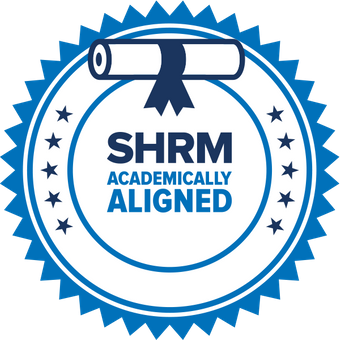
COST & TIME
An Online HR Management Degree That's Affordable
By charging per term rather than per credit—and empowering students to accelerate through material they know well or learn quickly—WGU helps students control the ultimate cost of their degrees.
An HR Management Degree Within Reach
There is help available to make paying for school possible for you:

The average student loan debt of WGU graduates in 2022 (among those who borrowed) was less than half* the national average.

Most WGU students qualify for financial aid, and WGU is approved for federal financial aid and U.S. veterans benefits.

Many scholarship opportunities are available. Find out what you might be eligible for.
* WGU undergraduate students have approximately half the debt at graduation compared to the national average, according to the Institute for College Access and Success (2022).
FLEXIBLE SCHEDULE
What Makes Us Different: An HR Management Degree Designed to Fit Today’s Busy Lifestyles
WGU was built for the busy student . Study whenever and wherever works best for you while managing your existing job and family responsibilities. Your effort, not class time, determines the pace of your progress. No interrupting your work or family obligations. No rigid class schedules. No barriers to earning your degree on your own terms. Just a solid, career-focused education that dovetails seamlessly with your current lifestyle.
This online M.S. in Human Resource Management degree program is designed for working professionals, so you don't have to quit your job or leave your other responsibilities behind to get an online HR degree. You don't have to log in to classes, your assignments don't have due dates—you're in charge of your education.
“My degree from WGU helped me advance from an entry-level position. WGU has a spokesperson in every alumnus—their job knowledge gained from their coursework speaks for itself.”
—Megan Elizabeth Darveau, Human Resource Generalist, Phoenix Healthcare Management Services

CAREER OUTLOOK
Strengthen Your Strategic Business Skills with a Degree in HR Management
Organizations largely succeed or fail based on the employees they hire and their engagement —talented, happy employees deliver much better outcomes. That is why hiring skilled, qualified HR managers and professionals is essential for every organization. HR professionals help find the r ight employees, train them, and ensure they have a positive experience.
With your master’s degree in human resources management, you will gain the critical skills and credentials that will help you stand out from the competition in an exciting and lucrative field. Some of the critical skills you will develop focus on include workforce planning, training, development, benefits, compensation, and more. Get started on your educational journey with a master's degree today!
Return on Your Investment
On average, wgu graduates see an increase in income post-graduation.
Average income increase from all degrees in annual salary vs. pre-enrollment salary. Source: 2023 Harris Poll Survey of 1,655 WGU graduates.
Survey was sent to a representative sample of WGU graduates from all colleges. Respondents received at least one WGU degree since 2017.
Human resource management professions are expected to grow by 7% by the year 2031, which is faster than the national average for job growth.
—U.S. Bureau of Labor Statistics
An Online Human Resource Degree That Helps You Focus on Helping Others
Relevant hr skills.
- Talent Acquisition
- HR Management
- Employee Relations
- Training and Development
- Performance Management
- Organizational Leadership
- Strategic Planning
- Total Rewards Management
- Change Management
Employment Opportunities
- Recruitment Manager
- DE&I Manager
- Learning and Development Manager
- Director of HR
- VP of People and Culture
- Employment Law Specialist
- Talent Acquisition Manager
WGU Grads Hold Positions With Top Employers
Admissions requirements—hr management.
To be considered for this M.S. Human Resource Management program, students must:
- Submit a transcript verifying receipt of your bachelor’s degree from a recognized, accredited institution.
NOTE: You do not need to take the GRE or GMAT to be admitted to this program. Learn why we don't require these tests.
Transfer Credits
Get Your Enrollment Checklist
Download your step-by-step guide to enrollment.
Get Your Questions Answered
Talk to an WGU Enrollment Counselor.
MORE DETAILS
Additional Credentials
The Human Resource Management Master's degree program allows students to earn valuable credentials on their path to a degree, including the WGU HR Technology and Analytics for Decision Making Certificate, and the SHRM Inclusive Workplace Culture credential. These credentials allow you to demonstrate mastery and add impact to your résumé before you even graduate with your degree. Additionally this program is SHRM and HRCI aligned, preparing you for the SHRM CP and HRCI PHR if you have not already earned those credentials.

Commonly Asked Questions About the HR Management Degree
What subjects are studied in a master’s in human resource management.
In a Human Resource Management master's degree program you'll study a variety of subjects, including:
- Managing and leading people
- HR compliance and employee relations
- Data-driven decision making
- Management communication
- Talent acquisition and development
- Inclusive workplace culture
Is a master’s in human resource management worth it?
Earning your master’s in HR management equips you with the in-demand skills and expertise you need to be a leader in your organization and in your field. It opens up new career opportunities and higher salaries. This makes pursuing this degree an ideal choice for those who are ready to boost their career.
What can you do with a master’s in human resource management?
You’ll be prepared for a variety of roles in Human Resources, DEI, and Organizational Culture, such as:
- HR Business Partner
- HR Manager, Director of HR
- Total Rewards Specialist
- Chief HR Officer
- DEI Manager
- HR Compliance Specialist
How much can I make with a master’s in human resource management?
According to the Bureau of Labor Statistics, in 2022, the national median salary for a human resource manager was $130,000. Salaries ranged from $76,600 to $224,360.
The University
For students.
- Student Portal
- Alumni Services
Most Visited Links
- Business Programs
- Student Experience
- Diversity, Equity, and Inclusion
- Student Communities
Human Resources
Barrett mcbride, phd, mcc.

Position Title Manager, Learning & Organizational Development; Founder, UCD Coaching Community of Practice; Director, UCD Executive Leadership Coaching Program
- Learning & Organizational Development
- 916-456-5855
- [email protected]
Barrett McBride, PhD, MCC, is a seasoned executive leadership coach, organizational development consultant, and leader.
At UC Davis, her current focus includes leading a team of senior consultants and coaches, evoking a servant leadership approach. “This team is composed of creative, multi-talented professionals who are at their best when they are free to use their considerable expertise in partnership with their clients, to create the most effective approach for each client and each engagement,” she says. “I do my best to create an environment for them to do their best.”
As a working leader, Barrett coaches academic leaders, physicians, and physician leaders, as well as senior academic and health care administrators. She also develops executive leadership coaching programs for client organizations and works with individual clients, teams, and units to build and improve culture, and to heal from burnout.
Barrett founded the UC Davis Executive Leadership Coaching Program and the UCD Coaching Community of Practice.
Barrett received a PhD in Human and Organizational Systems from Fielding Graduate University. She holds a MA in Human Development, a MS in Organizational Development, and a BS in Business.
She is a Certified Master Coach (MCC) through the International Coach Federation, a Certified Coach Supervisor through the Coaching Supervision Academy, and holds numerous other coaching credentials. She is also on the faculty of an international coach training organization.
Barrett is certified and experienced in the delivery of numerous developmental assessments and tools, including:
- The Leadership Circle 360° and Leadership Culture assessments
- Hogan individual Leadership Development and 360° Leadership assessments
- The Global Leadership Profile (vertical development)
- Human Synergistics Organizational Culture and Organizational Effectiveness inventories
- Polarity Partners Polarity Management
- Myers-Briggs Type Indicator (MBTI),
- Thomas Kilmann Conflict Mode Instrument (TKI)
As a practitioner, Barrett is a certified DEIB practitioner, a certified mediator, a Prosci certified change management practitioner, and is LEAN certified.
Representation Engagements
Performance Marketing Executive: Ambitious Dubai-based client sought a pathway to COO for a large, decentralized international technology company. At the outset he was driven toward promotion with an eye on the title, not the job. Coaching focused on helping him develop curiosity about the elements of the position he sought in relation to his values, strengths, and enjoyment of specific areas of his work. As a result, he found role models and developed strategic relationships that helped him develop higher level capabilities and an interest focus, resulting in recognition and strategic partnerships that could support him toward the next level.
Health System CFO: Accomplished regional CFO of a U.S.-based health system sought coaching to prepare for the next phase of her career. She was confident in her technical skillset, but not in her ability to become CFO of the entire system. Coaching focused on helping her reframe aspects of her experience, developing awareness of and tools for managing the impact of her behavior on others, expanding her strategic vision beyond the region toward the entire system and expanding her executive presence.
Law Firm Business Development Committee: Boutique law firm sought results from its monthly business development meetings of senior partners. Coaching focused on creating strategies for ideas generated and accountability for their commitments. At the start of the engagement the firm had 20 attorneys, today it has over 60.
Academic Leader: For an academic leader making a transition to administrative leadership, coaching focused on recognizing and developing the differing leadership and skill requirements of academic leadership vs. administrative leadership. Client developed an effective decision-making approach, learned to express his expectations effectively and to manage subordinates and university leadership with desired results.
Pharma Senior Vice-President: Coaching a pharma scientific executive upon his return to the organization following an episode of burnout, focused on establishing boundaries, and communicating his value productively, recognizing his role in the professional development of his PhD subordinates, and developing a continued upward career trajectory that was satisfying and allowed for balance in his life.
What My Clients Have to Say…
"We learn some about the science of medicine in medical school and some about the art of medicine in residency and advanced training. No one teaches you about the business and politics of the life in medicine. Through the hardest 9 months of a burgeoning career, Barrett has served as a coach and trusted counselor. But even while providing necessary support, Barrett is silently and simultaneously championing me to articulate and actuate life and career goals, stepping out of my comfort zone in ways I never thought possible. We don't work with motivational messages or memes; Barrett helps you form a concrete, actionable plan to lead and to succeed. Barrett is a master of her craft ." Cardiologist, Academic Medical Center
"One of the most striking things I have noticed through my coaching work with Barrett is that I feel more capable. Similarly, I feel like I am learning much more from each new experience than I had previously. Barrett's coaching has accelerated my growth as a leader." Richard Balzer, Ph.D., Senior Vice-President, Vaniam Group
"Barrett strikes the right balance between creating a comfortable space to share doubts and triumphs, on one hand, and on the other, pushing her client to see where and why they may be resistant to change in order to continue to mature as a leader. I am a stronger leader as a result of the coaching I received from Barrett." J. David Furlow, PhD, Associate Dean, Professor, Neurobiology, Physiology and Behavior, UC Davis
"Insight. Impact. Those are the two things that changed for me in working with Barrett. She is astute without being critical. She is focused without losing sight of the larger picture. She is empathetic but still gets me to hold myself accountable. She helped expand my idea of what was possible for myself. Changing my own perception of myself changed others." Jane Harrington, J.D., CEO, Working by Design
- Skip to navigation
- Skip to content
- UMB Shuttle

University of Maryland, Baltimore
About UMB History, highlights, administration, news, fast facts
- Accountability and Compliance
- Administration and Finance
- Center for Information Technology Services
- Communications and Public Affairs
- Community Engagement
- Equity, Diversity, and Inclusion
- External Relations
- Government Affairs
- Philanthropy
- Office of the President
- Office of the Provost
- Research and Development
- University Counsel
- Administrative Officers
- Boards of Visitors
- Faculty Senate
- Staff Senate
- Center for Health and Homeland Security
- Council for the Arts & Culture
- Interprofessional Education
- Leaders in Education: Academy of Presidential Scholars
- Middle States Self-Study
- President's Council for Women
- President's Symposium and White Paper Project
- For the Media
- Steering Committee Roster
- Logistics Committee Roster
- UMB Police and Public Safety
- Graduation Celebration 2024
- Founders Week
- UMB Holiday Craft Fair
Academics Schools, policies, registration, educational technology
- School of Dentistry
- Graduate School
- School of Medicine
- School of Nursing
- School of Pharmacy
- School of Social Work
- Carey School of Law
- Health Sciences and Human Services Library
- Thurgood Marshall Law Library
Admissions Admissions at UMB are managed by individual schools.
- Carey School of Law Admissions
- Graduate School Admissions
- School of Dentistry Admissions
- School of Medicine Admissions
- School of Nursing Admissions
- School of Pharmacy Admissions
- School of Social Work Admissions
- Tuition and Fees
- Student Insurance
- Academic Calendar
- Financial Assistance for Prospective Students
- Financial Assistance for Current Students
- Financial Assistance for Graduating Students
Research Offices, contracts, investigators, UMB research profile
- Organized Research Centers and Institutes
- UMB Institute for Clinical & Translational Research
- Sponsored Programs Administration
- Sponsored Projects Accounting and Compliance (SPAC)
- Kuali Research
- Clinical Trials and Corporate Contracts
- CICERO Log-in
- Conflict of Interest
- Human Research Protections
- Environmental Health and Safety
- Export Compliance
- Effort Reporting
- Research Policies and Procedures
- Center for Innovative Biomedical Resources
- Baltimore Life Science Discovery Accelerator (UM-BILD)
- Find Funding
- File an Invention Disclosure
- Global Learning for Health Equity Network
- Manage Your Grant
- Research Computing
- UM Research HARBOR
- Center for Violence Prevention
- Office of Research and Development
- Center for Clinical Trials and Corporate Contracts
- Technology Transfer/UM Ventures
- Contact Research and Development
Services For students, faculty, and staff, international and on-campus
- Student Health Resources
- Educational Support and Disability Services
- Writing Center
- URecFit and Wellness
- Intercultural Leadership and Engagement
- Educational Technology
- Student Counseling Center
- UMB Scholars for Recovery
- UMB Student Affairs
Human Resource Services
- Travel Services
- Strategic Sourcing and Acquisition Services
- Office of the Controller
- Office of the Ombuds
- Employee Assistance Program (EAP)
- Workplace Mediation Service
- Faculty Center for Teaching and Learning
- UMB Travel: Start Here
- International Students, Scholars, and Employees
- Center for Global Engagement
- International Travel SOS
- International Operations
- Parking and Transportation Services
- UMB shuttle
- SMC Campus Center Event Services
- Donaldson Brown Riverfront Event Center
- All-Gender Bathrooms
- Environmental Services
- Interprofessional Program for Academic Community Engagement
University Life Alerts, housing, dining, calendar, libraries, and recreation
- Emergency Reference Guide
- Campus Life Weekly with USGA
- Starting a New Universitywide Organization
- University Student Government Association
- Planned Closures
- Intramural Sports
- Safety Education
- About URecFit and Wellness
- How to Get Your One Card
- One Card Uses
- Lost One Card
- One Card Policies
- Photo Services
- One Card Forms
- One Card FAQs
- Office Hours and Directions
Give to UMB Sustain excellence and meet UMB's educational needs for today and tomorrow.

Thank You for Your Gift to UMB
The University of Maryland, Baltimore (UMB) is excited to share its new online giving page.
With enhanced searchability, a streamlined checkout process, and new ways to give such as Venmo, PayPal, Apple Pay, and Google Pay in addition to credit card, donors can support UMB quickly and securely.
- Ways to Give
- Where to Give
- Staying Connected: You and UMB
- The UMB Foundation
- Office of Philanthropy
- Maryland Charity Campaign

- Current Employees
- Employee Learning and Development
Learning and Development Request Form
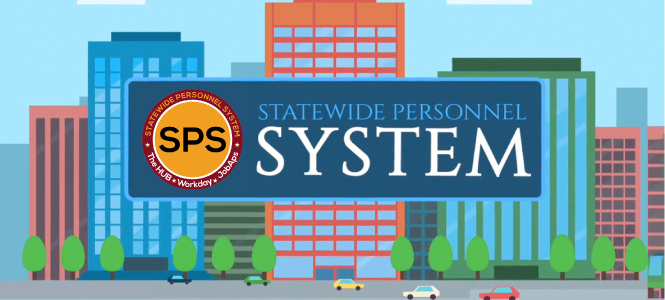
620 W. Lexington St. 3rd Floor Baltimore, MD 21201
P 410-706-2606

Our team is committed to providing services that can leverage learning, build capacity, or design solutions to improve individual or team effectiveness. Please take a moment to complete the three sections of the request form below - Contact and Unit Information, Description of Request, and Benefits for Change:
The University of Maryland, Baltimore is the founding campus of the University System of Maryland. 620 W. Lexington St., Baltimore, MD 21201 | 410-706-3100 © 2023-2024 University of Maryland, Baltimore. All rights reserved.
- ISU Navigate
- Faculty & Staff
- Virtual Tour
Common Searches
- Academic Calendar
- Transcripts
- Scholarships
- Event Tickets
- Health Center
- APA Style Guide
- Financial Aid
Master’s in Human Resource Development Graduate Pursues Further Education for Her Love of Teaching
April 29, 2024
Chloe Gibb is a master’s student in the human resource development (HRD) program at the Idaho State University College of Education. Gibb is set to graduate in May 2024 and hopes to have a fruitful career teaching students at the collegiate level.
Growing up in a household that promoted learning and personal growth, Gibb noted that her parents deeply shaped who she is today. One of her most recurrent memories was being quizzed by her father on the drive to school on her spelling, and celebrating with her mother when she got good grades. It was through their continuous support that Gibb understood the impact of education, chose to pursue higher education, and become a teacher.
Gibb graduated from Renaissance High School with a dual enrollment associate’s degree in general arts from Idaho State in 2015, which allowed her to go on to pursue a secondary associate’s degree in culinary arts. After relocating to Oregon and working on her culinary diploma, Gibb moved back to Meridian, Idaho to work in a restaurant and gain real-world service experience.
“At the time, my goal was to own or manage a restaurant,” Gibb shared. “After experiencing multiple restaurants not being run properly, and observing certain attitudes toward those who did not perform well, I wanted to make a change.”
Making a change for Gibb meant teaching—which is exactly what she began doing. While simultaneously working toward her bachelor’s degree in workplace training and leadership, Gibb taught culinary arts to students at Renaissance High School. She also sought out support from her current program advisor and professor, Dr. Robin Lindbeck, who helped Gibb on the path toward a master’s program in HRD, which she is now set to complete this spring.
The HRD program prepares students for rewarding careers in a variety of industries, including corporations, nonprofit organizations, K-16 educational institutions, and so on. Students grow into leaders in this program and can complete their courses at their own pace, thus allowing them to graduate at a time that is right for them.
Coming into the HRD program allowed Gibb to grow and learn despite challenging assignments and classes. Gibb noted that her teachers have all been a great support system for her during her time in her program. “I have enjoyed every teacher I have worked with,” Gibb said. “Every teacher and course provided a different perspective for me and helped me grow and become well-rounded.”
Gibb noted that she plans to utilize her master’s degree to give different perspectives to organizations she works in. She is currently pending approval to begin a doctorate program in higher education and hopes to teach courses in HRD, as teaching is what she loves.
When it comes to both her program and advisors and how they prepared her for her future career, Gibb said, “Both did a great job in preparing me. Dr. Lindbeck was the best advisor I could have ever had, and she really went above and beyond to help me find the program that would fit my future goals and create a plan to achieve them. I cannot thank her enough.”
To learn more about the HRD program at the College of Education, please visit isu.edu/olp .
Categories:
University News
- Accessibility Options:
- Skip to Content
- Skip to Search
- Skip to footer
- Office of Disability Services
- Request Assistance
- 305-284-2374
- High Contrast
- School of Architecture
- College of Arts and Sciences
- Miami Herbert Business School
- School of Communication
School of Education and Human Development
- College of Engineering
- School of Law
- Rosenstiel School of Marine, Atmospheric, and Earth Science
- Miller School of Medicine
- Frost School of Music
- School of Nursing and Health Studies
- The Graduate School
- Division of Continuing and International Education
- People Search
- Class Search
- IT Help and Support
- Privacy Statement
- Student Life
- University of Miami
- Division of University Communications
- Office of Media Relations
- Miller School of Medicine Communications
- Hurricane Sports
- UM Media Experts
- Emergency Preparedness
- School Education and Human Development
- Educational and Psychological Studies
- Kinesiology and Sports Sciences
- Teaching and Learning
- Publications
- Department of Educational and Psychological Studies
- Department of Kinesiology and Sport Sciences
- Department of Teaching and Learning
- Latest Headlines
- Subscribe to News@TheU Newsletter
- UM NEWS HOME
New group of University scholars join Bouchet Honor Society
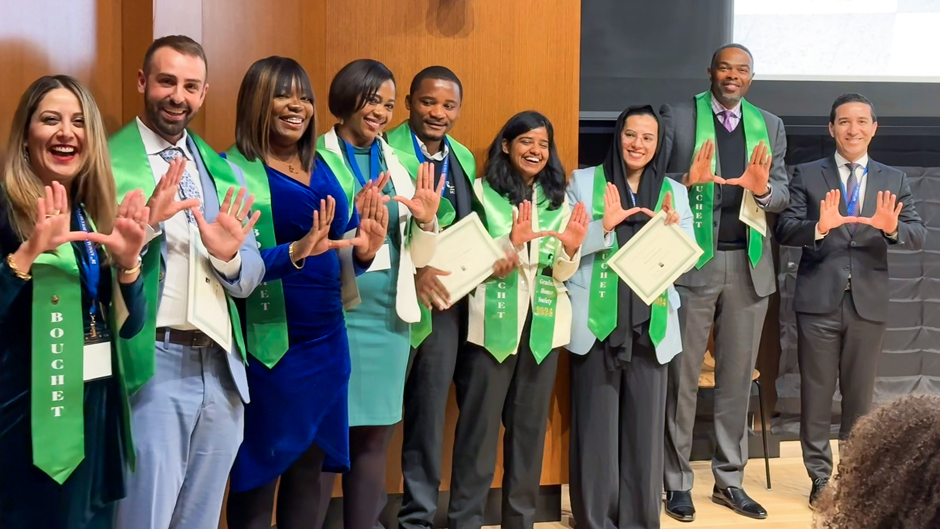
University of Miami faculty and students celebrate being inducted into the Bouchet Graduate Honor Society.
By Janette Neuwahl Tannen [email protected] 06-06-2024
Ten members of the University of Miami community were honored for their academic achievements and inducted into the distinguished Edward Alexander Bouchet Graduate Honor Society recently at Yale University.
Named after Edward Alexander Bouchet, a physicist who was also the first self-identified African American to earn a doctoral degree in the United States, the society aims to foster a growing number of scholars who exemplify academic and personal excellence in their field, but who also serve as models of scholarship and leadership for students of diverse backgrounds who are often underrepresented in the academy.
Three University faculty members, one postdoctoral fellow, and six University graduate students were inducted into the society, and many participated in the annual Bouchet Conference, where some presented their research.
“We are honored that so many of our own were selected to join this prestigious organization and had a chance to showcase their work this spring,” said Nicole Leeper Piquero , interim dean of the Graduate School. “It is a testament to the diversity and talent we have at the University of Miami, among our faculty, postdocs and graduate students.”
Since the Bouchet Honor Society was founded in 2005, several University faculty members have been recognized, including President Julio Frenk, who was honored with the Bouchet Leadership Medal in 2016. In addition, 44 graduate students have been inducted into the organization. Each year, the University nominates faculty members, students, and postdoctoral fellows who either identify with underrepresented communities, or whose research focuses on underserved communities.
This year’s faculty honorees include:
Ronald L. Jackson II , a professor of communication studies and journalism at the School of Communication , previously served as a faculty member at Penn State University as well as the University of Illinois, where he became head of African American Studies, and then as an associate dean at the College of Media, before heading to the University of Cincinnati to become dean of the McMicken College of Arts and Sciences. An author of 17 books, Jackson’s interdisciplinary research focuses on intercultural communication, racial trauma, cultural identity, social justice, and/or media.
Yolanda M. Mart í nez-San Miguel is the Marta S. Weeks Chair in Latin American Studies and specializes in Latin American and Caribbean literature as a professor within the Michele Bowman Underwood Department of Modern Languages and Literatures at the College of Arts and Sciences . An author of four books, Martínez-San Miguel teaches classes in literature, Spanish, and gender studies and has been an advocate for diverse and first-generation students and faculty for 30 years.
Nikki Traylor-Knowles is an associate professor of marine biology and ecology at the Rosenstiel School of Marine, Atmospheric, and Earth Science , where she investigates the immune function of corals. Traylor-Knowles has expertise in cell and molecular biology and studies how the physiology of corals responds to heat stress. Traylor-Knowles is also the founder and director of Black Women in Ecology, Evolution, and Marine Science , a nonprofit organization whose goal is to help support Black women pursuing science professions.
Graduate student honorees:
Khulud Almutairi is a Ph.D. candidate in the School of Nursing and Health Studies . She earned her nursing degree and went on to serve as a clinical nursing instructor in her native Saudi Arabia, before coming to Coral Gables to pursue her graduate degree. Almutairi’s doctoral research focuses on workplace discrimination of Muslim nurses in the United States. She also formed the Digital Nursing Team to create educational videos for nurses in Arabic. Almutairi aspires to become a nursing educator and researcher, and to develop a holistic form of health care tailored to the well-being of the Muslim community.
Shruti Choudhary is a doctoral candidate in the Department of Chemical, Environmental, and Materials Engineering at the College of Engineering . Her research focuses on the development of new aerosol sensors for health and safety in indoor, outdoor, and space environments. Through her research, Choudhary advocates for the safety of health care professionals, firefighters, and astronauts. She is an active member of the University’s interdisciplinary Center for Aerosol Science and Technology and the Firefighter Cancer Initiative , and is currently developing a sensor to detect citrus greening , which is diminishing America’s citrus crops.
Kapiamba Kashala Fabrice is a graduate student in chemical, environmental and materials engineering at the College of Engineering known for his research and commitment to community. His current work focuses on the toxicity of combustion aerosols, including e-cigarette emissions. He is also an intern at Phoenix Tailings, a company exploring environmentally friendly ways to harvest metals and rare earth elements. Fabrice is committed to mentoring the next generation of engineers in an inclusive academic environment.
Padideh Lovan is a postdoctoral associate at the Sylvester Comprehensive Cancer Center and in the School of Nursing and Health Studies. A registered dietitian, Lovan’s research focuses on multilevel influences on cancer risk behaviors, including poor nutrition, physical inactivity, tobacco use, and alcohol consumption in Hispanic youth.
Rachelle Reid is a doctoral student in clinical psychology at the College of Arts and Sciences , focused on elevating the health of marginalized and underserved communities. Her work has focused on Black women living with HIV and has studied the most effective holistic prevention and intervention methods. Her dissertation focuses on mental health outcomes and religious coping among Black women living with HIV as well as burnout among professionals working in the HIV field. Reid’s mission is to use clinical psychology to help the larger society understand communities that have long faced discrimination.
Guerdiana Thelomar is a graduate student pursuing her doctorate in community psychology at the School of Education and Human Development . Her current research focuses on the experiences and well-being of Black women as they navigate educational experiences. Thelomar hopes her work will contribute to creating healthier and more equitable environments for African American students as they navigate higher education.
Elliot Weinstein is a graduate student in the clinical psychology track at the College of Arts and Sciences with a concentration on behavioral medicine and quantitative psychology. He is a health equity scholar whose research centers on HIV prevention and treatment in marginalized communities, the intersection of aging and HIV, and innovating community engaged research practices.
School of Education & Human Development
All degrees, get started, support sehd, 'canes calendar.

- 5202 University Drive Merrick Bldg. Rm. 312 Coral Gables , FL 33124
- 305- 284-3711 305- 284-3711
- UM News and Events
- Alumni & Friends
- 'Cane Watch
Tools and Resources
- Academic Calendar
- Department Search
- Parking & Transportation
- social-facebook
- social-twitter
- social-youtube
- social-instagram
Copyright: 2024 University of Miami. All Rights Reserved. Emergency Information Privacy Statement & Legal Notices Title IX & Gender Equity Website Feedback
Individuals with disabilities who experience any technology-based barriers accessing the University’s websites or services can visit the Office of Workplace Equity and Inclusion .

COMMENTS
This Human Resource Development (HRD) track program prepares you to conduct research and provide sophisticated consultation into how workers acquire new knowledge and skills, relate to one another in complex social environments, and transition to management and leadership positions. You will learn how to see HRD theories and practices in larger ...
Human Resource Development (HRD) is the process of improving learning and performance in individual, group, and organizational contexts through domains of expertise such as lifelong learning, career development, training and development, and organizational development. Our students have opportunities for international travel, professional presentations and writing for publication.
A doctorate in human resources, or a Ph.D. in human resources, is the terminal degree in the field, meaning it is the highest degree level you can attain. Doctoral degree holders in human ...
The PhD in Human Resource Development is a 60-credit-hour program designed to develop scholars and practitioners who are ready to advance in the profession and serve as leaders in higher education, government and industry. Complete your coursework in as little as two years, with one additional year for writing your dissertation.
Human Resource Development (HRD), as defined by the HRD faculty at Texas A&M University, is the process of improving learning and performance in individual, group, and organizational contexts through domains of expertise such as lifelong learning, career development, training and development, and organizational development. Interested students ...
Graduates of doctoral human resources programs can become postsecondary teachers in fields like business or management. Professors commonly specialize in teaching human resources as part of a DBA or Ph.D. program. Postsecondary teachers typically require a doctoral education. Median Annual Salary: $84,380.
EdD in Human Resource and Workforce Development Education Average Graduate Tuition Rate: $7,875 . Accreditation: Higher Learning Commission . Doctorate in Human Resources Score: 7. UARK offers an EdD in Human Resource and Workforce Development Education. The university has provided this top online HR doctorate degree for over seven years.
Human Resources and Organizational Development (HROD) is a field of practice dedicated to learning, development and performance for work and workplaces. ... experienced professionals who have returned to school to engage in full-time graduate study. However, part-time study is also an option. Our HROD doctoral students tend to be highly ...
The Educational Human Resource Development (EHRD) doctoral degree program prepares individuals for professional work settings and faculty positions in research and teaching colleges and universities. It also offers a variety of courses in which a student may choose to emphasize areas essential for the knowledge and skills necessary to meet your ...
The Leadership & Human Resource Development (LHRD) doctoral program offers a research-oriented, broad-based program of study that can be modified to fit student interests. The program is strongly grounded in leadership, human resource and organization development, and change management theory. The curriculum is focused on foundational and ...
Admission to the doctoral program in Human Resource Development is a three-step process. Apply for admission to the University of Arkansas Graduate School. Take the Graduate Record Examination (GRE). Apply for admission to the program. The items listed below must be sent in one packet. Complete an Application for Admission to HRWD Ed.D. Program.
Ph.D. in Human Resource Development. Average Graduate Tuition Rate: $6,264. Accreditation: Southern Association of Colleges and Schools Commission on Colleges. Doctorate in Human Resources Score: 7. The University of Texas at Tyler offers a Ph.D. in HR Development. This 60-credit-hour program is designed to help candidates advance the HR ...
The Doctor of Philosophy in Human Resource Management (PhD-HRM) program can be completed in 60 credits. Each foundational course runs 8 weeks, and dissertation courses run 12 weeks. ... In this course, you will focus on the development of the human resource function in organizations. From exploring employee recruitment, motivation, performance ...
The coursework for a PhD in Organizational Behavior and Human Resources Management consists of six seminars in the student's major (three required and three elective courses), three courses in research methodology and statistics, and three courses in a minor field of the student's choice.
The V illanova Graduate Program in Human Resource Development (HRD) is committed to its vision of developing global thought-leaders who drive high performing, inclusive organizations and create meaningful work experiences.. It is our mission to develop HR leaders through evidence-based education and applied experiences in functional and strategic human resource management, within dynamic ...
Human resources managers earn an average salary of $145,750 a year, and related roles like training and development managers earn an average of $125,920 a year, according to the BLS. The BLS ...
For more information on Cornell's Ph.D. in Human Resources program, please contact: ILR Graduate Programs Office Cornell University 218 Ives Hall Ithaca, NY 14853. ph: (607) 255-1522 fax: (607) 254-5225 email: [email protected] . Footer. News; Events; About ILR; ILRie Alumni Magazine;
The Ed.L.D Program — taught by faculty from the Harvard Graduate School of Education, the Harvard Business School, and the Harvard Kennedy School — will train you for system-level leadership positions in school systems, state and federal departments of education, and national nonprofit organizations. Ed.L.D. is a full-time, three-year ...
Human Resource Development PhD Program Orientation Students are required to attend a mandatory Human Resource Development PhD Program Orientation program. The orientation will be held on campus on the first day of your first class. The orientation provides an opportunity for students to meet faculty, staff,
The PhD in Organizational Development and Change is a multidisciplinary degree for scholar-practitioners who want to expand their capacities to bring about positive change in today's organizations and communities. ... coaches, and leaders in human resources, health care, and at nonprofits. Required Coursework. Effective date: 09/01/2023 ...
Through the Ph.D. in Organizational Leadership - Human Resource Development, offered online, you can learn the dynamics that contribute to the growth of an organization's human resources. Our online doctoral program in organizational leadership is a research-based terminal degree taught from a Christian worldview.
The University of Illinois at Urbana-Champaign is accredited by the Higher Learning Commission. 8. University of Texas - Tyler. Located in Tyler, Texas, the University of Texas at Tyler was established in 1971. The PhD in Human Resource Development program is offered by the university's Soules College of Business.
The MS in Human Resource Management and Development (HRMD) is designed to address the growing demand for strategic human resource professionals with specialized expertise in effectively leading and managing talent in today's global organizations. Taught by leading scholar-practitioners in human capital management, this human resources masters program explores the principles of management and ...
Human Resource Management. Doctor of Philosophy in Business Management. Capella's online PhD in Business Management, Human Resource Management equips you with skills to develop winning teams and empower people to do their best work. This program builds on a curriculum of ethics, research, and practice in the human resource field - including ...
The M.S. in Human Resource Management is 100% online and SHRM- and HRCI-content aligned. It's compact—10 courses—to help you quickly get the expertise you need to build your career. You'll also be prepared to earn your SHRM Inclusive Workplace Culture credential at no additional cost—it's included in your tuition.
Barrett McBride, PhD, MCC, is a seasoned executive leadership coach, organizational development consultant, and leader. At UC Davis, her current focus includes leading a team of senior consultants and coaches, evoking a servant leadership approach. "This team is composed of creative, multi-talented professionals who are at their best when they are free to use their considerable expertise in ...
Learning and Development Request Form. Our team is committed to providing services that can leverage learning, build capacity, or design solutions to improve individual or team effectiveness. Please take a moment to complete the three sections of the request form below - Contact and Unit Information, Description of Request, and Benefits for ...
KNSM Student Manages Goals On and Off the Pitch. Hart Ray '24, a recent graduate of our Sport Management program, is grateful for her experience in and out of the classroom, including her time as a student manager for the Fightin' Texas Aggie Women's Soccer Team. Ray joined the team in 2022 and gained hands-on experience in her field ...
Chloe Gibb is a master's student in the human resource development (HRD) program at the Idaho State University College of Education. Gibb is set to graduate in May 2024 and hopes to have a fruitful career teaching students at the collegiate level.
Based at Yale University, the organization honors faculty members and students who identify as part of an underrepresented community, or whose research focuses on underserved communities. University of Miami faculty and students celebrate being inducted into the Bouchet Graduate Honor Society. By Janette Neuwahl Tannen [email protected] 06-06-2024.